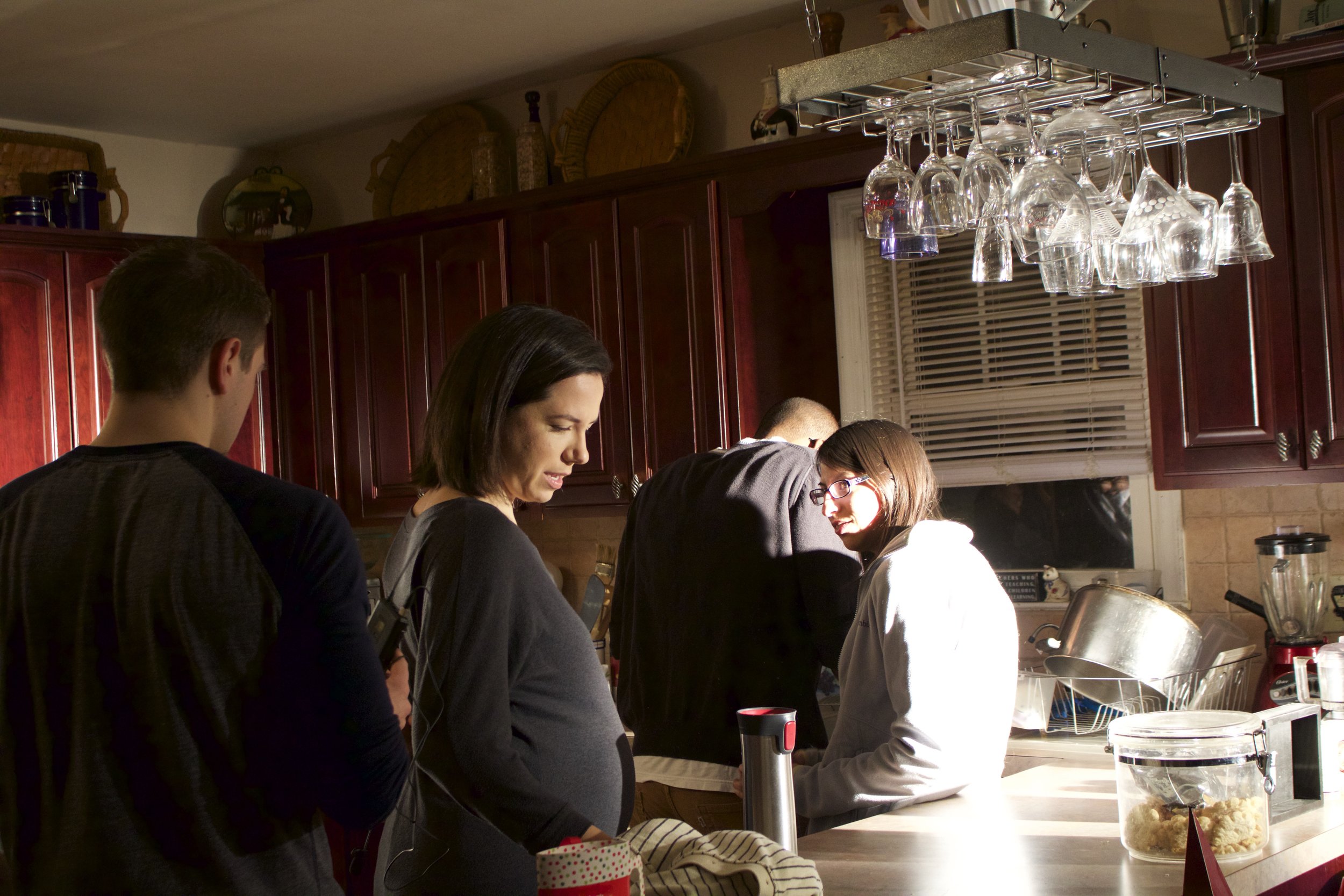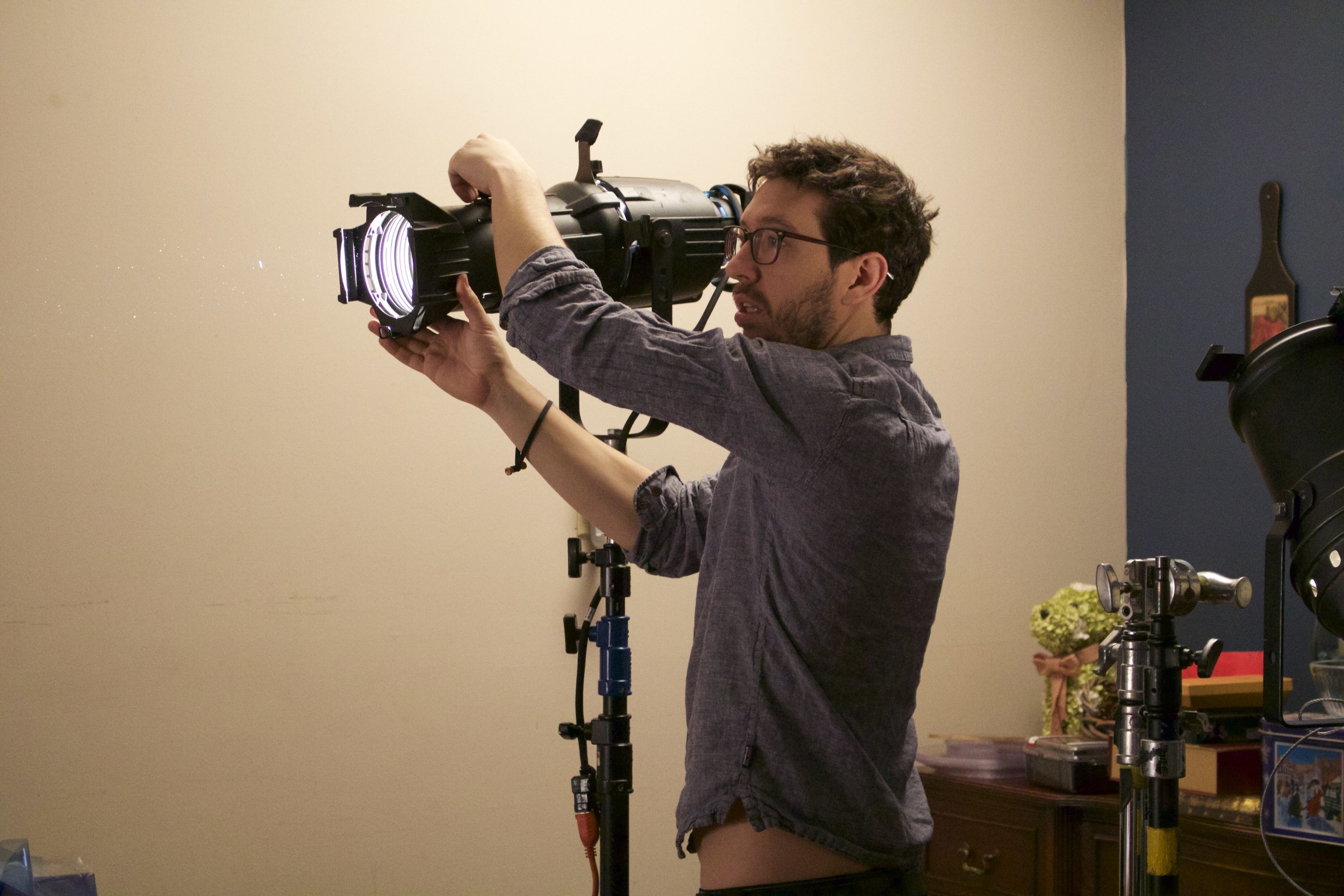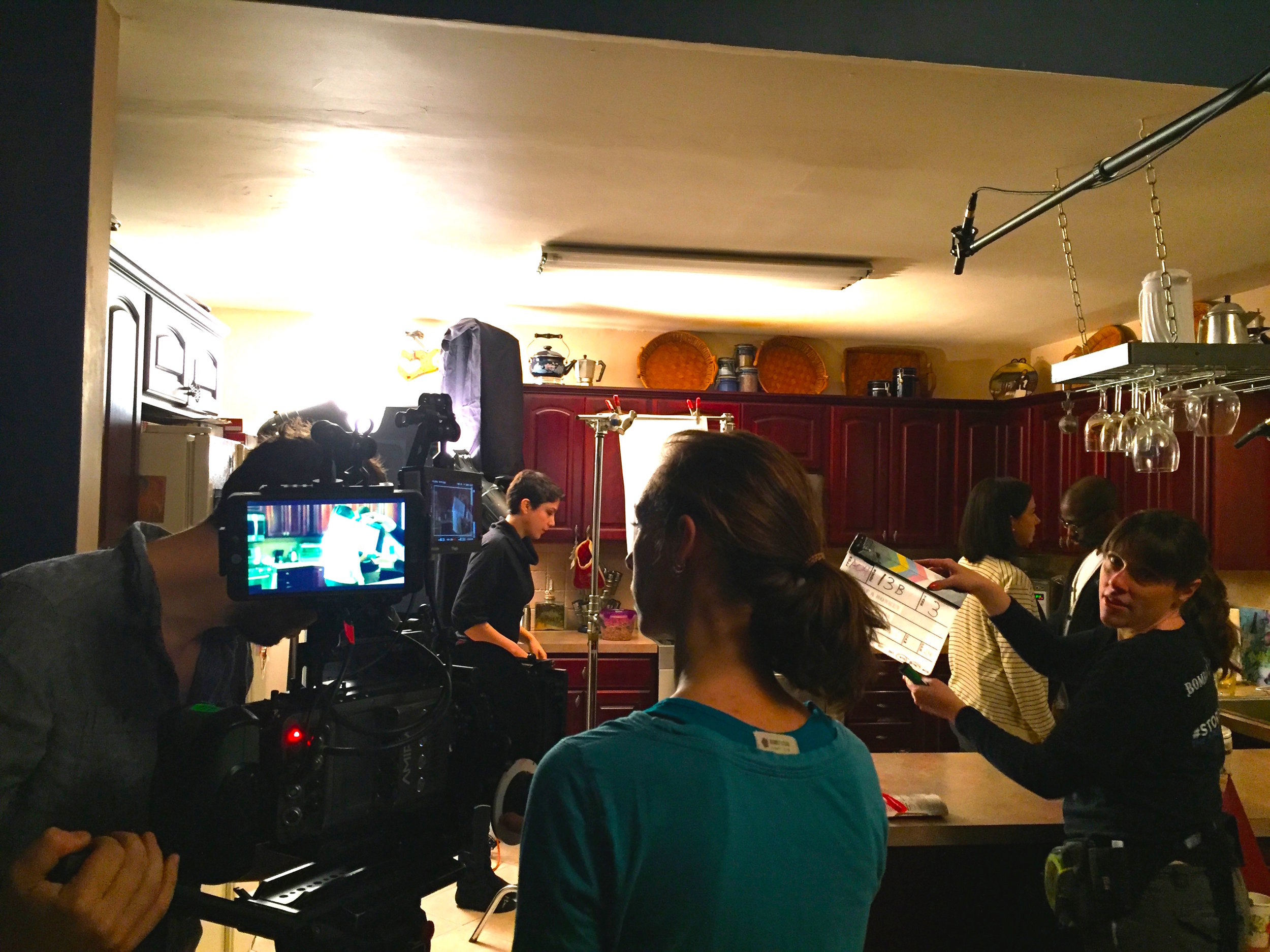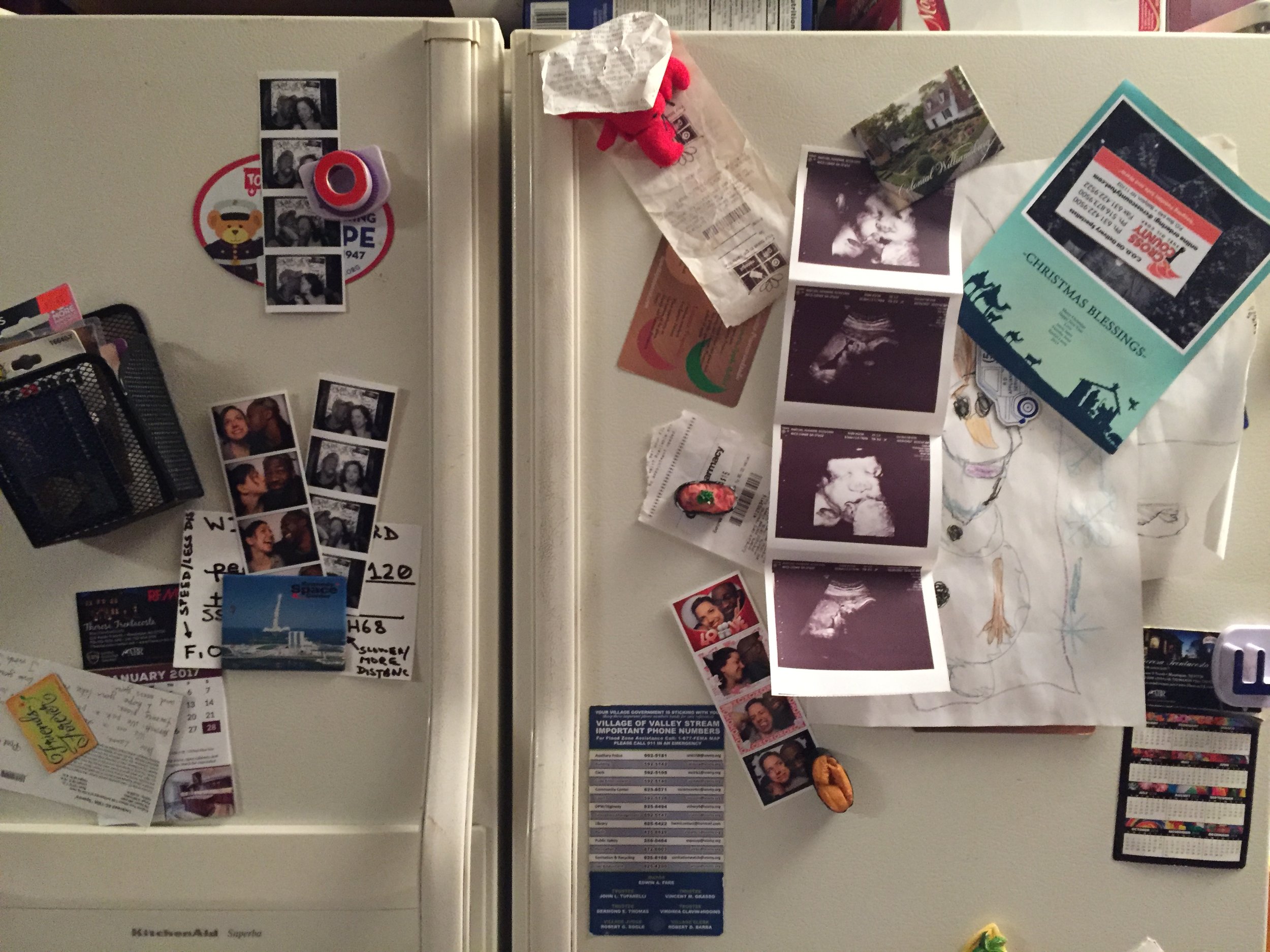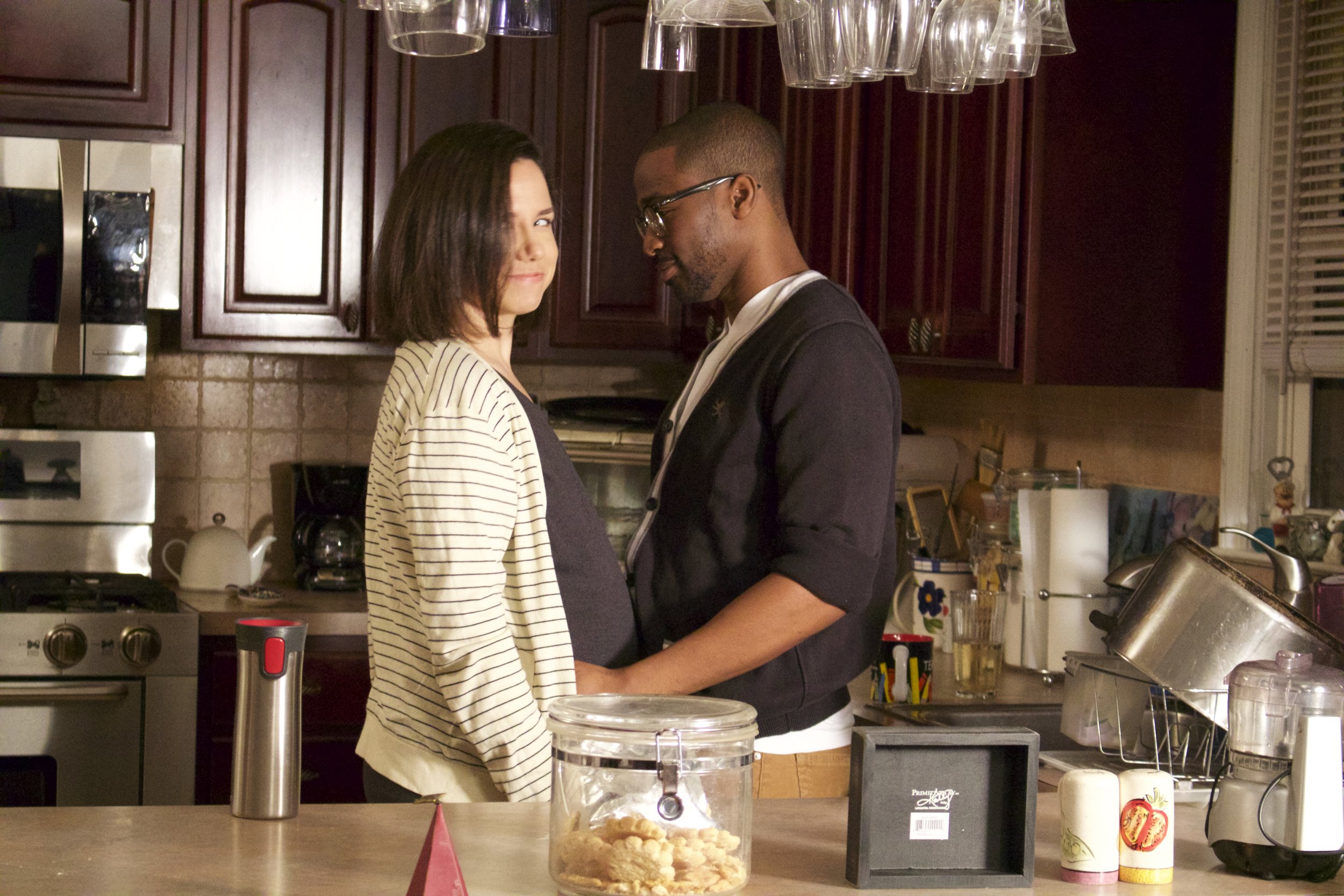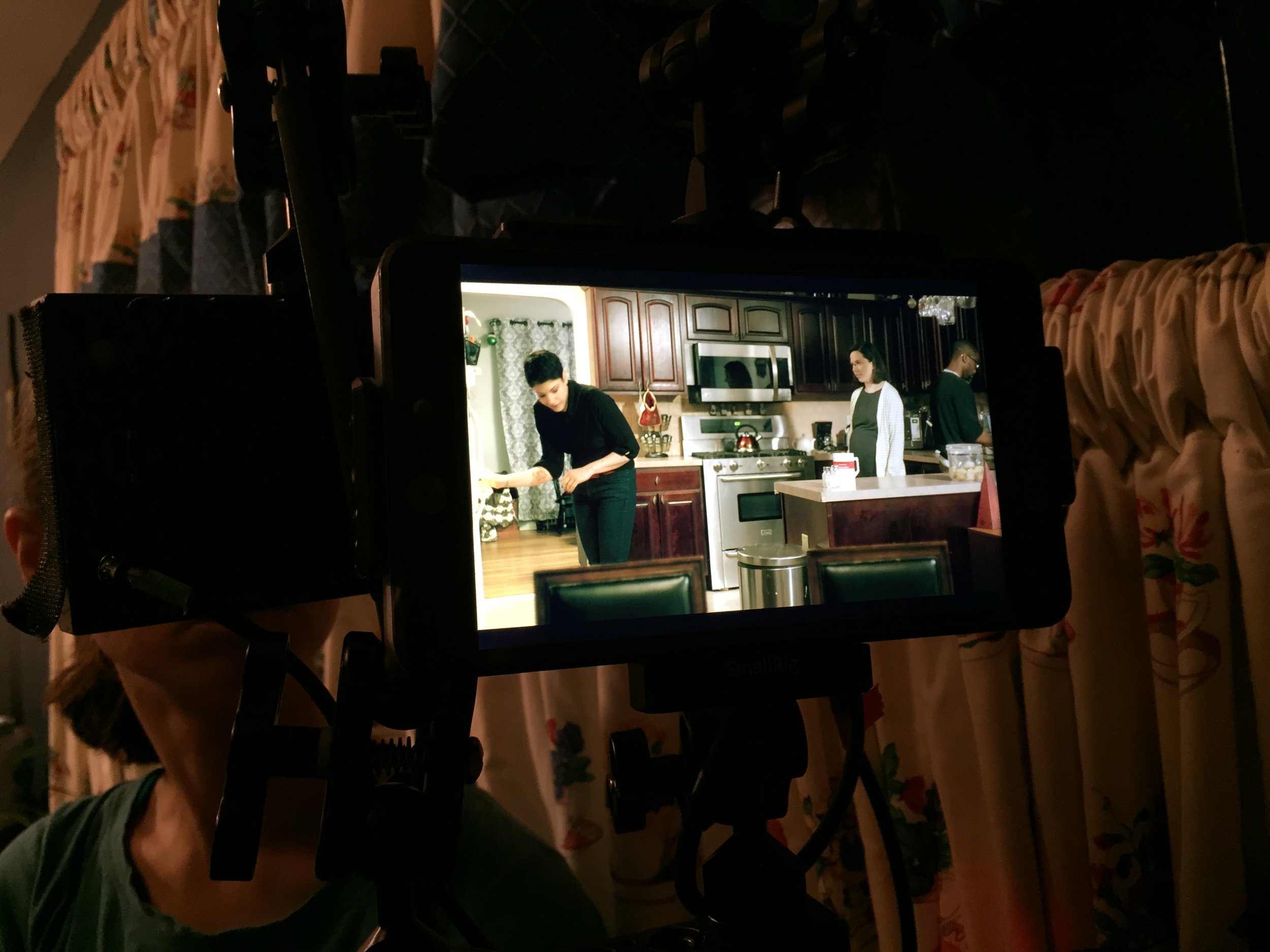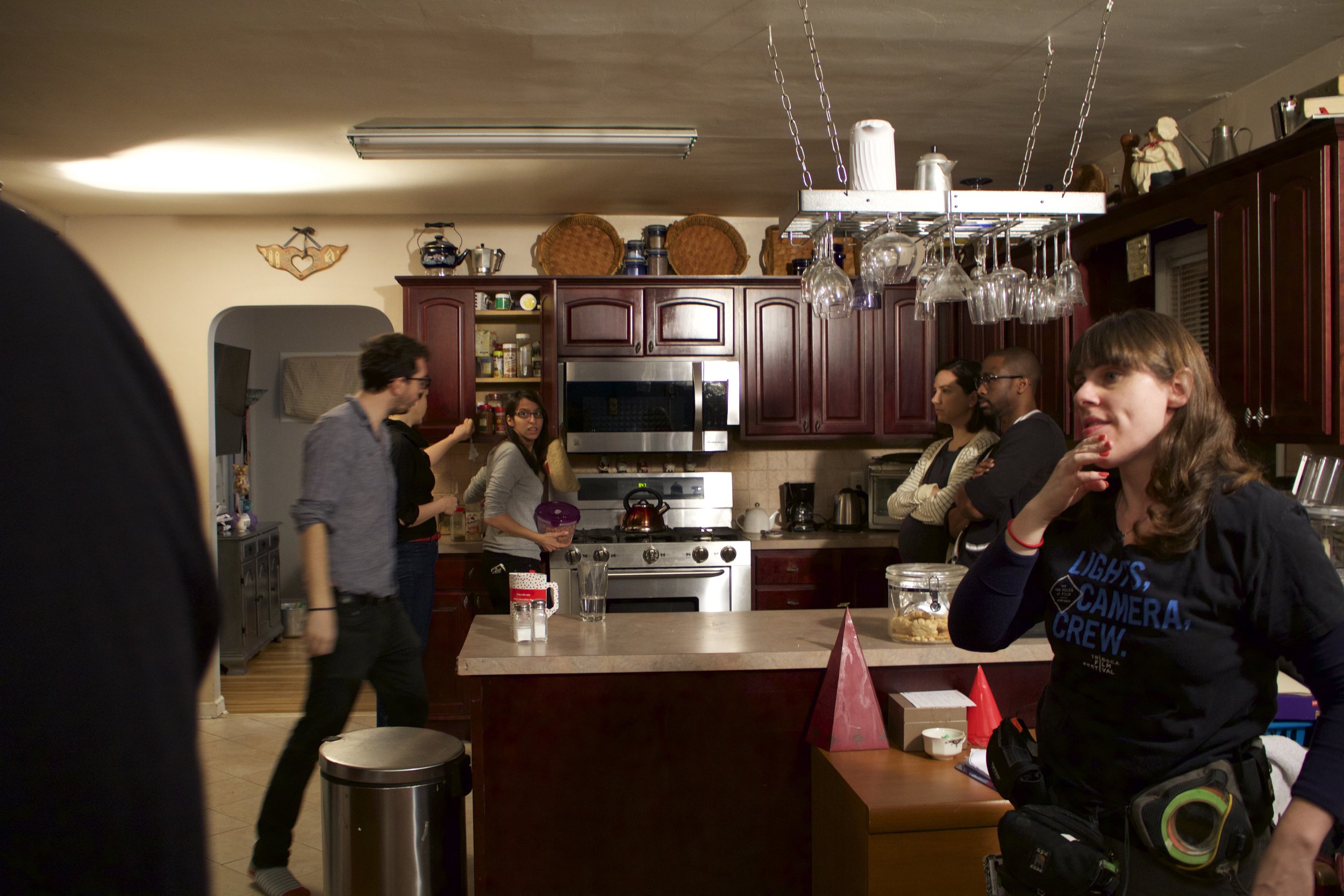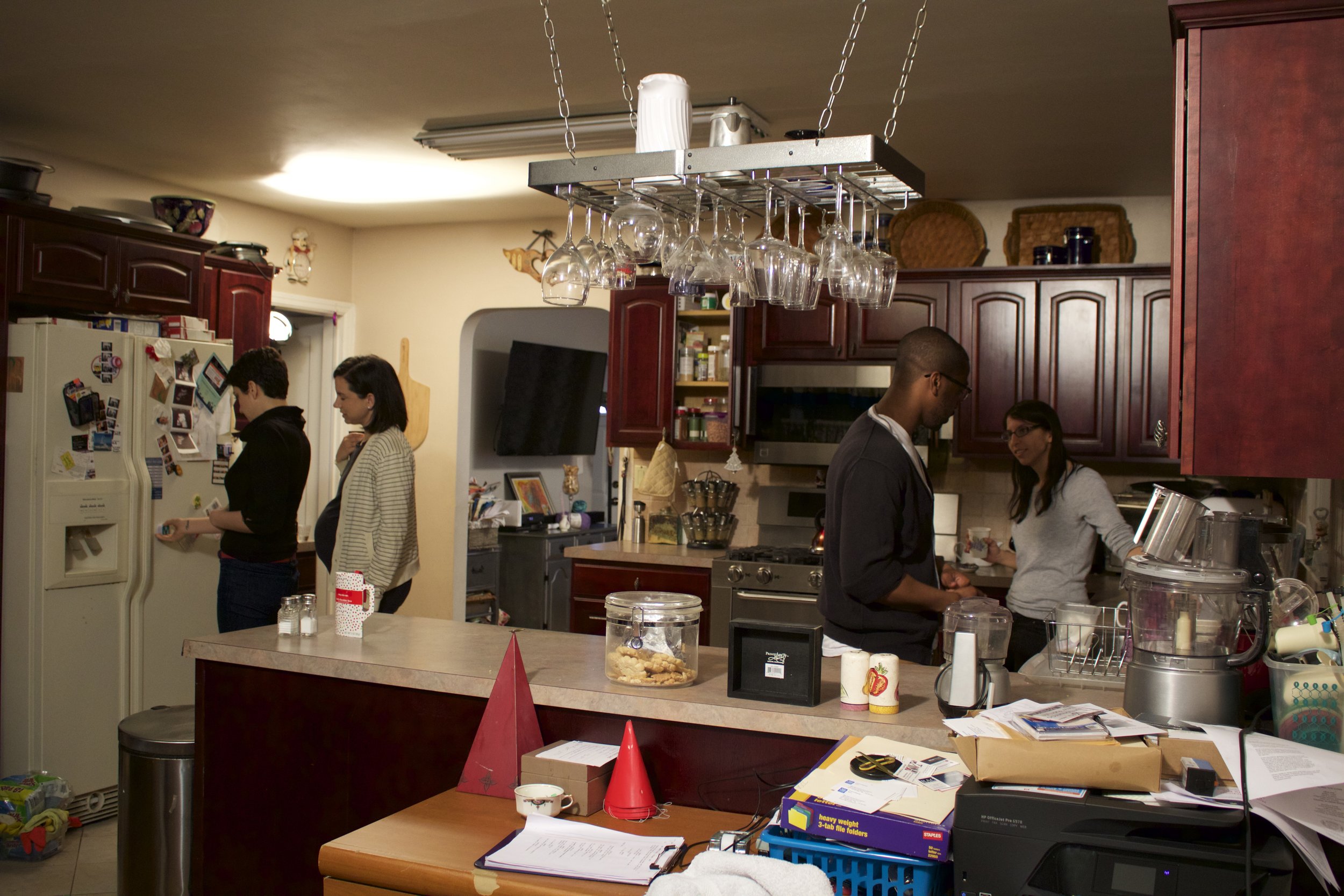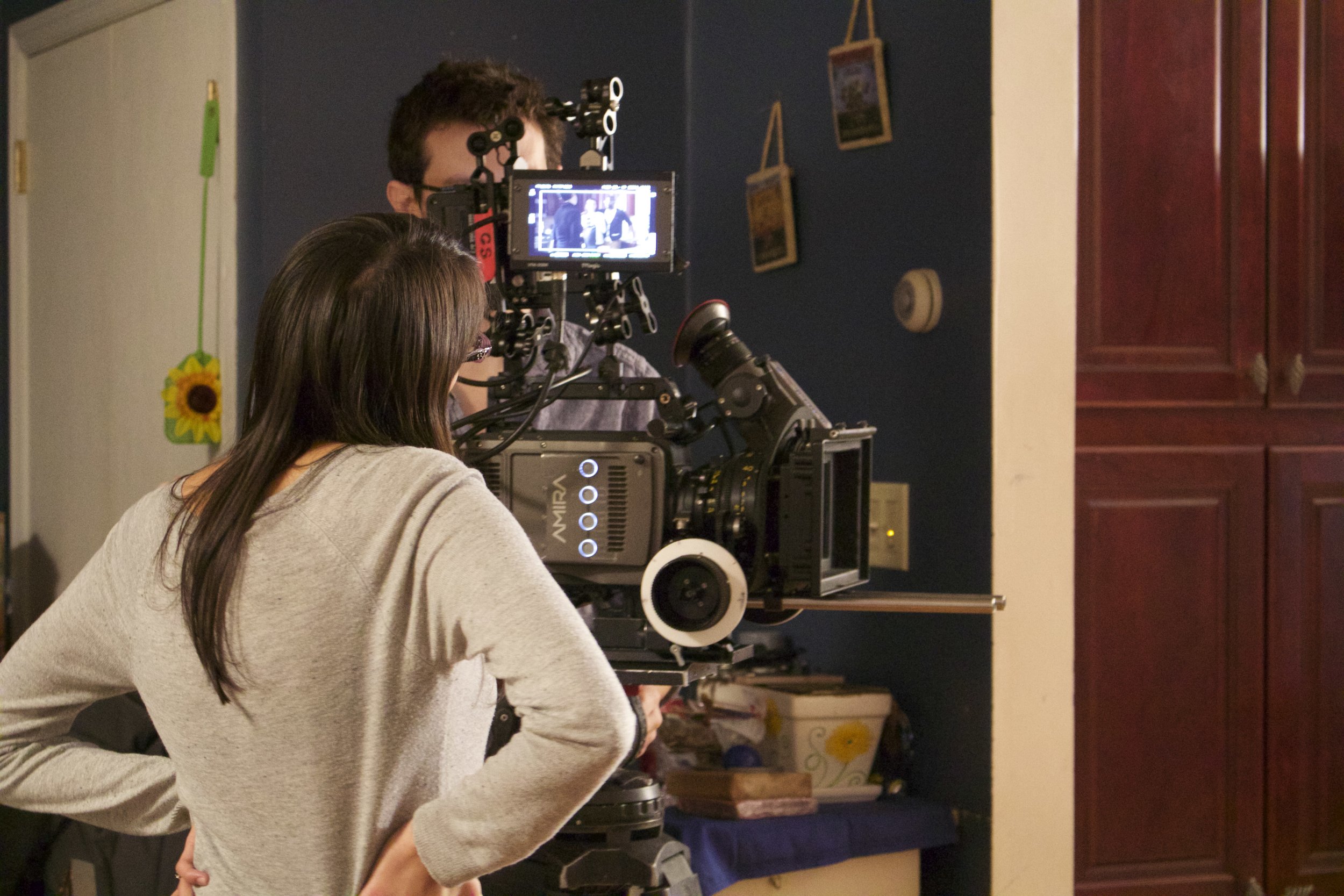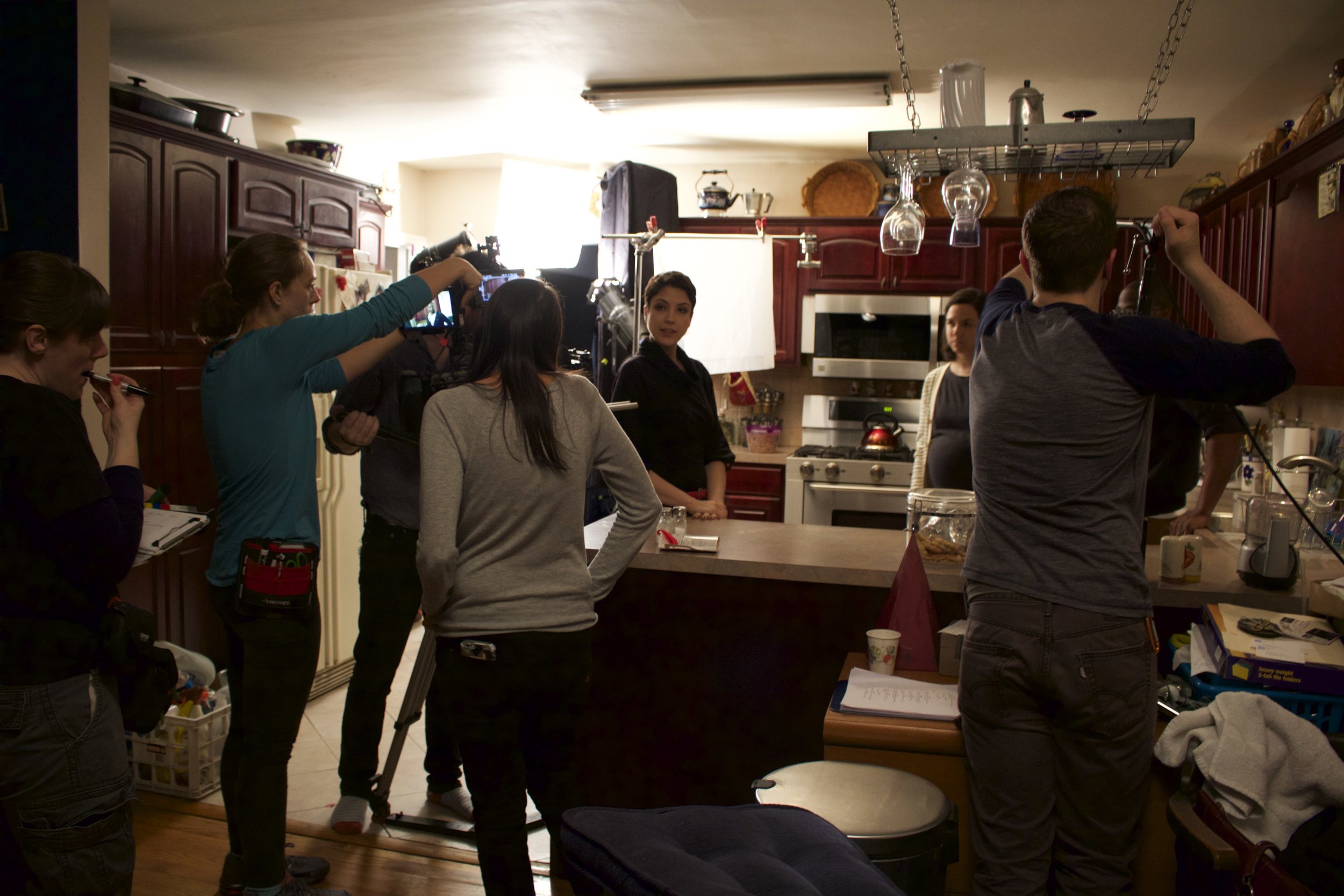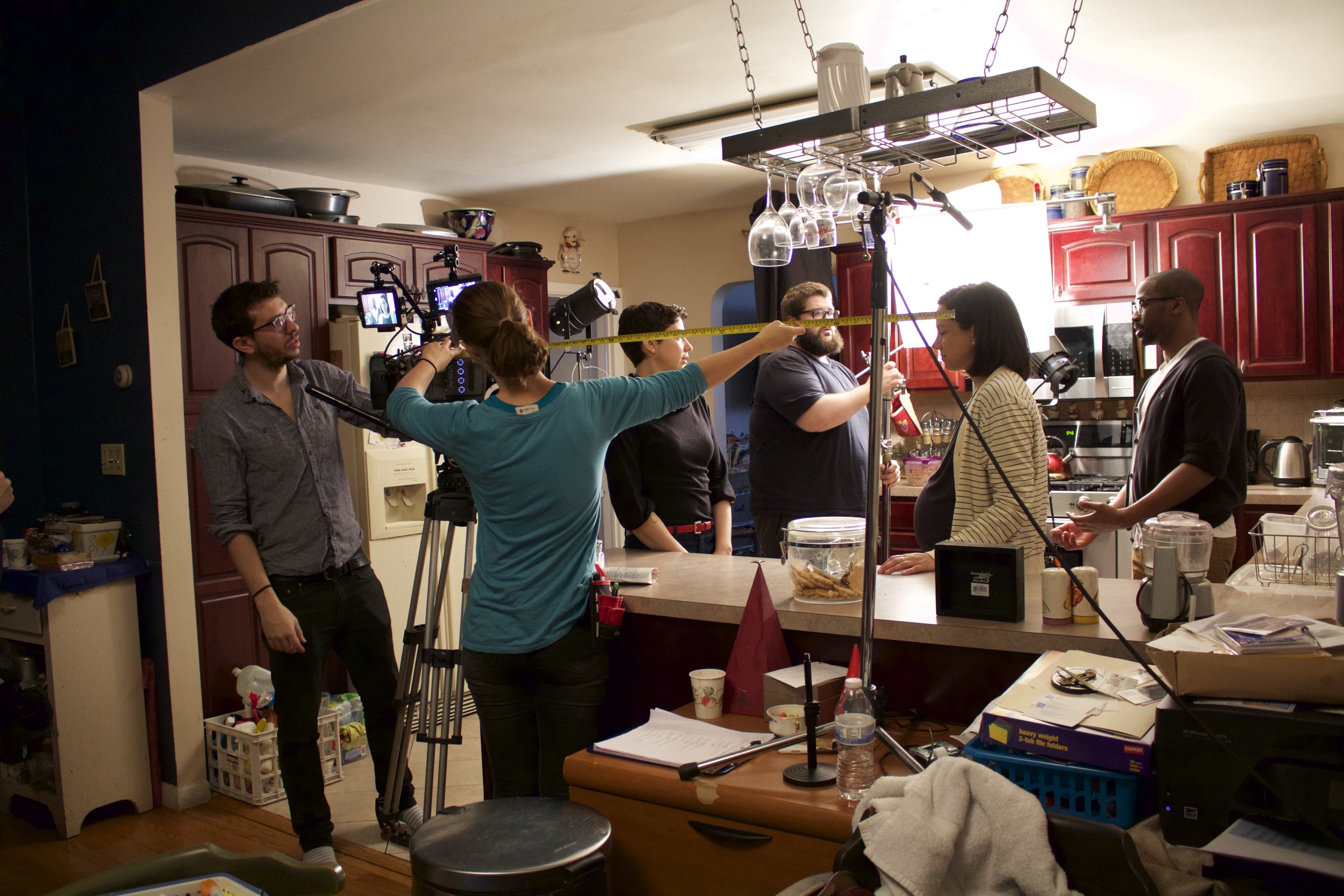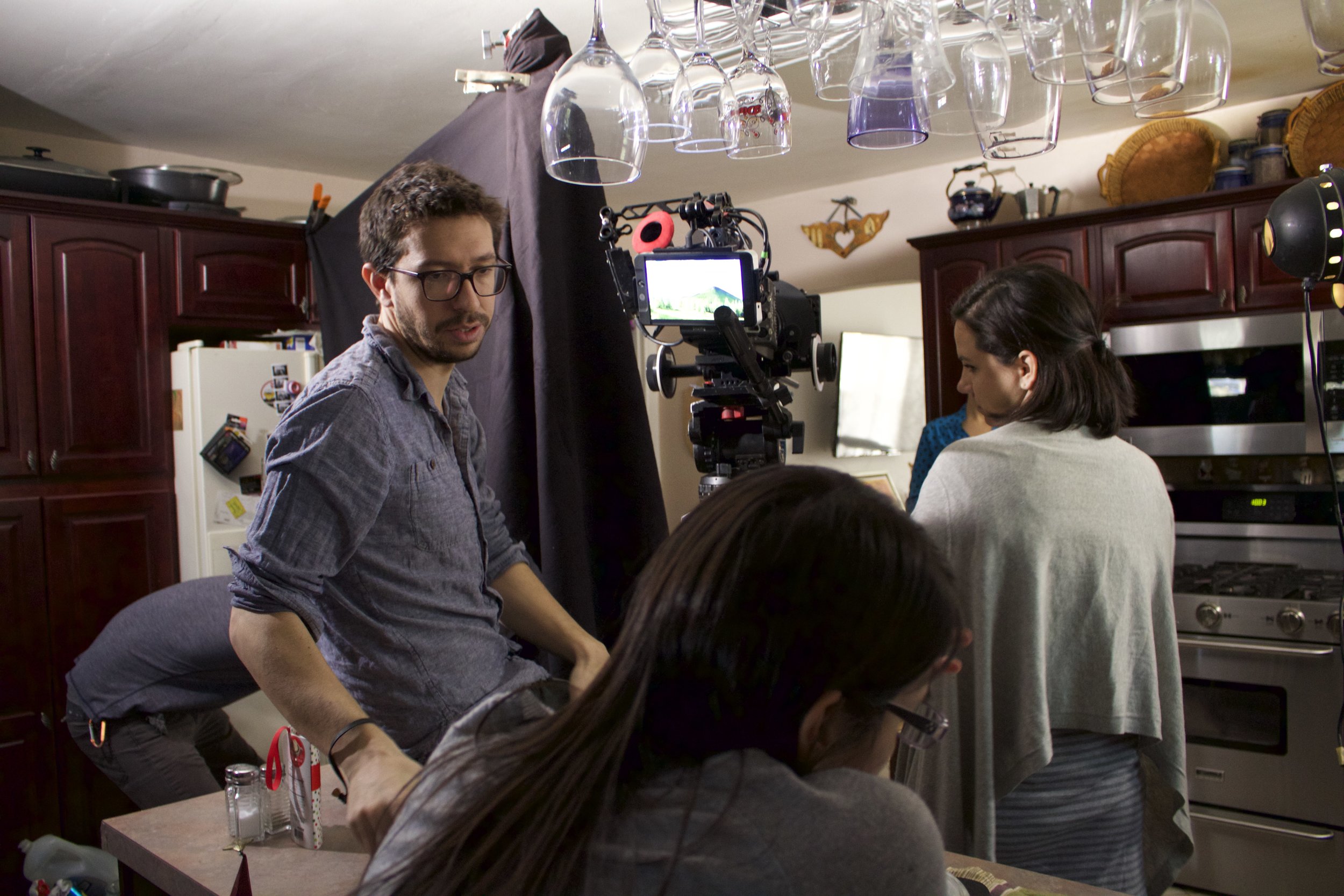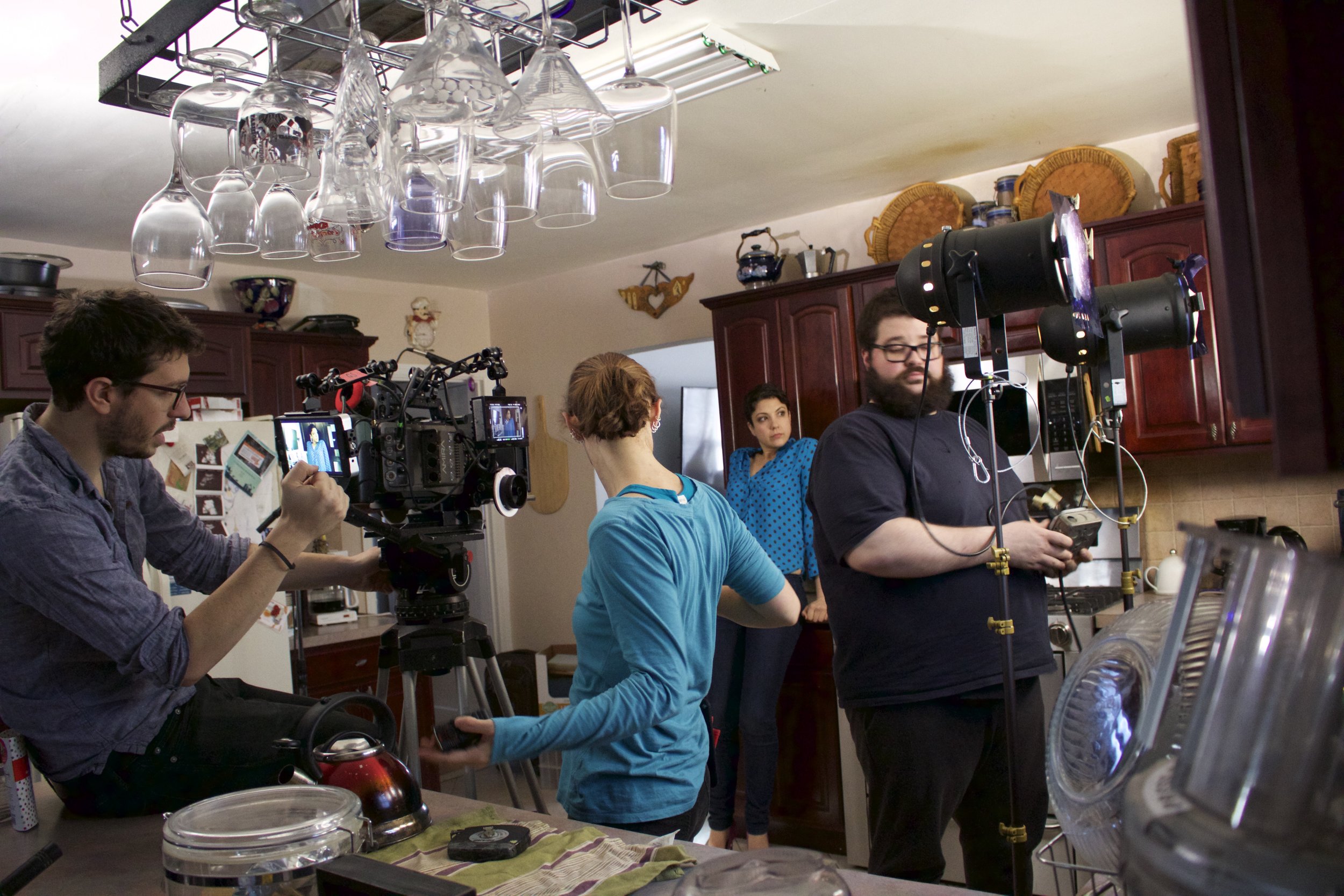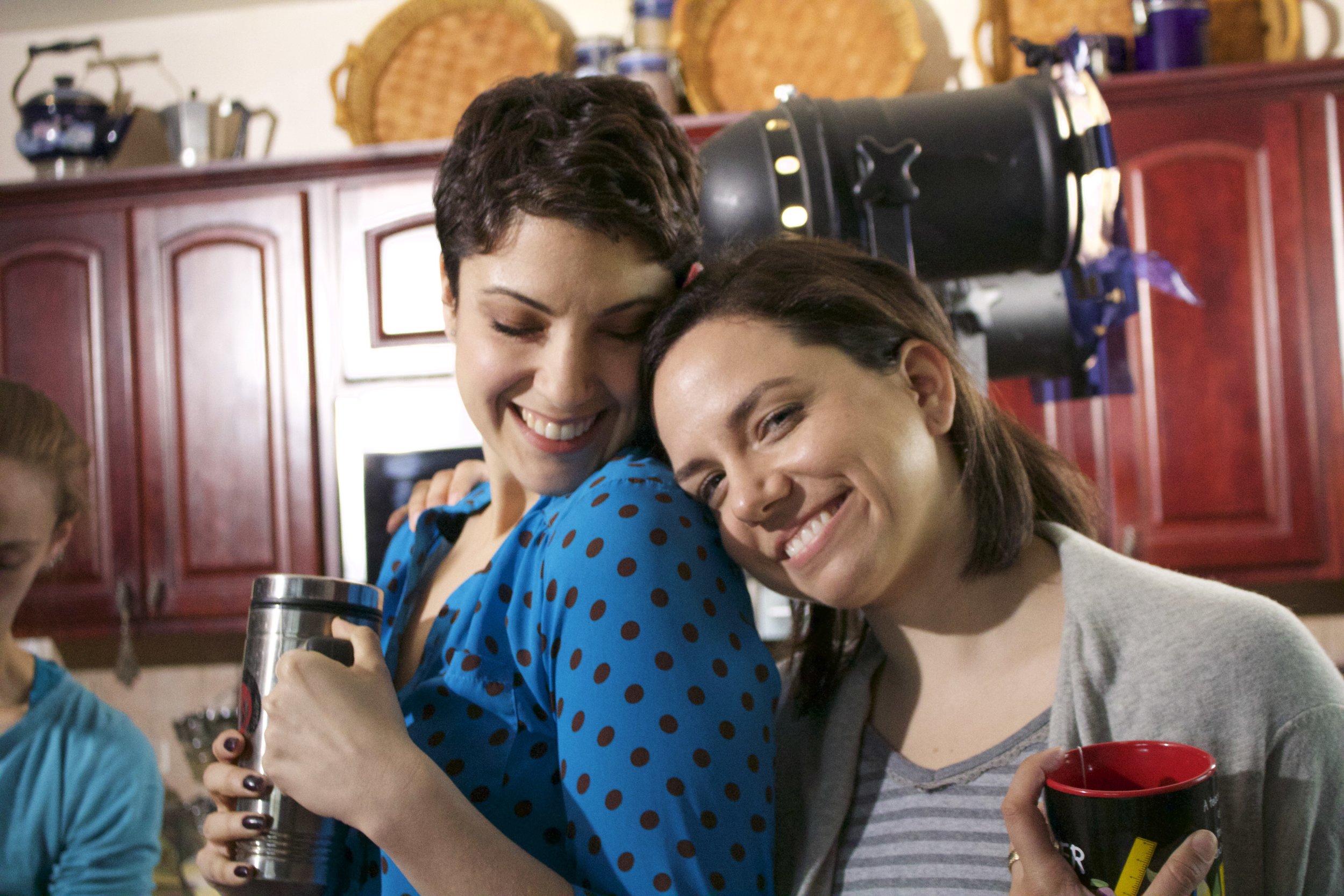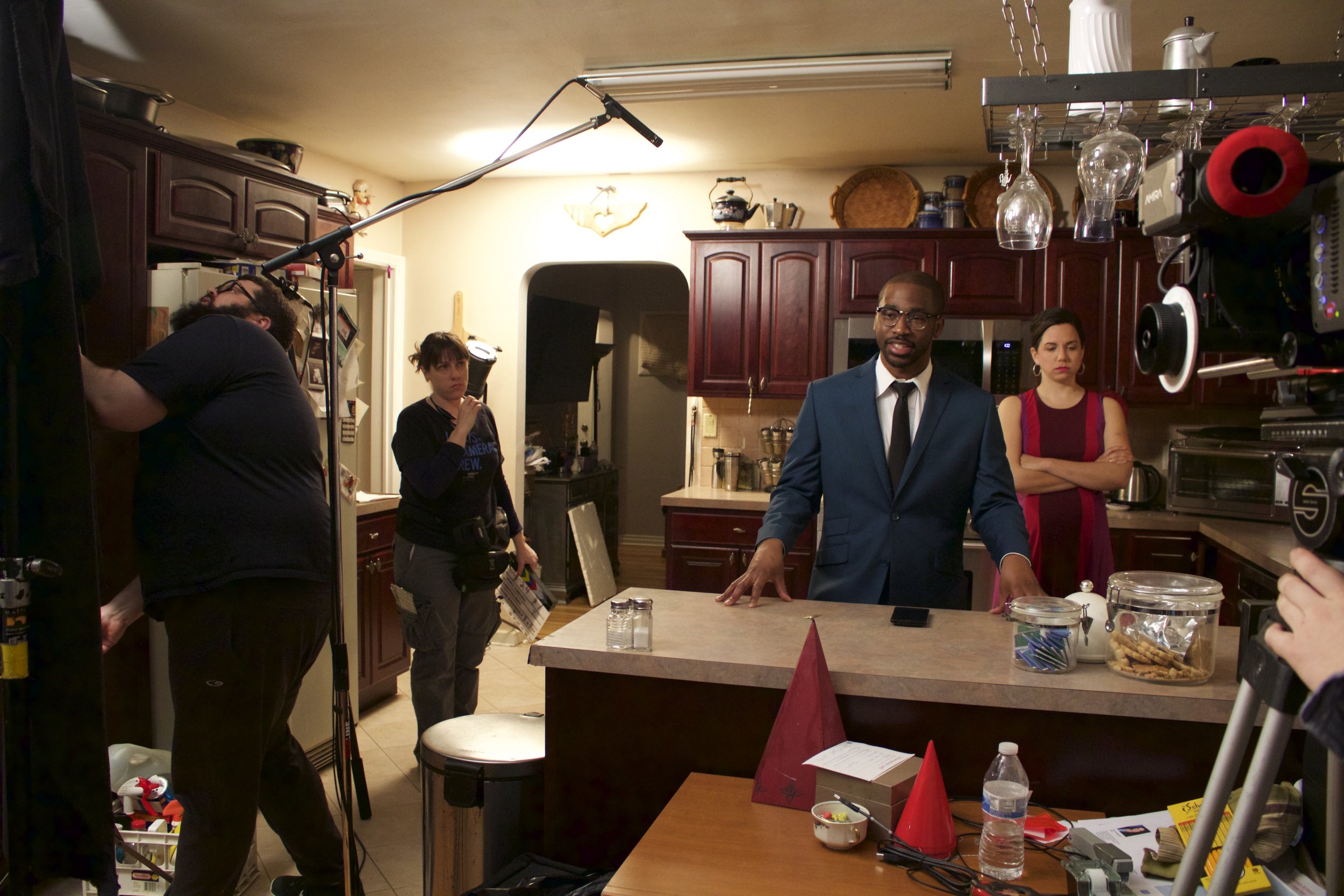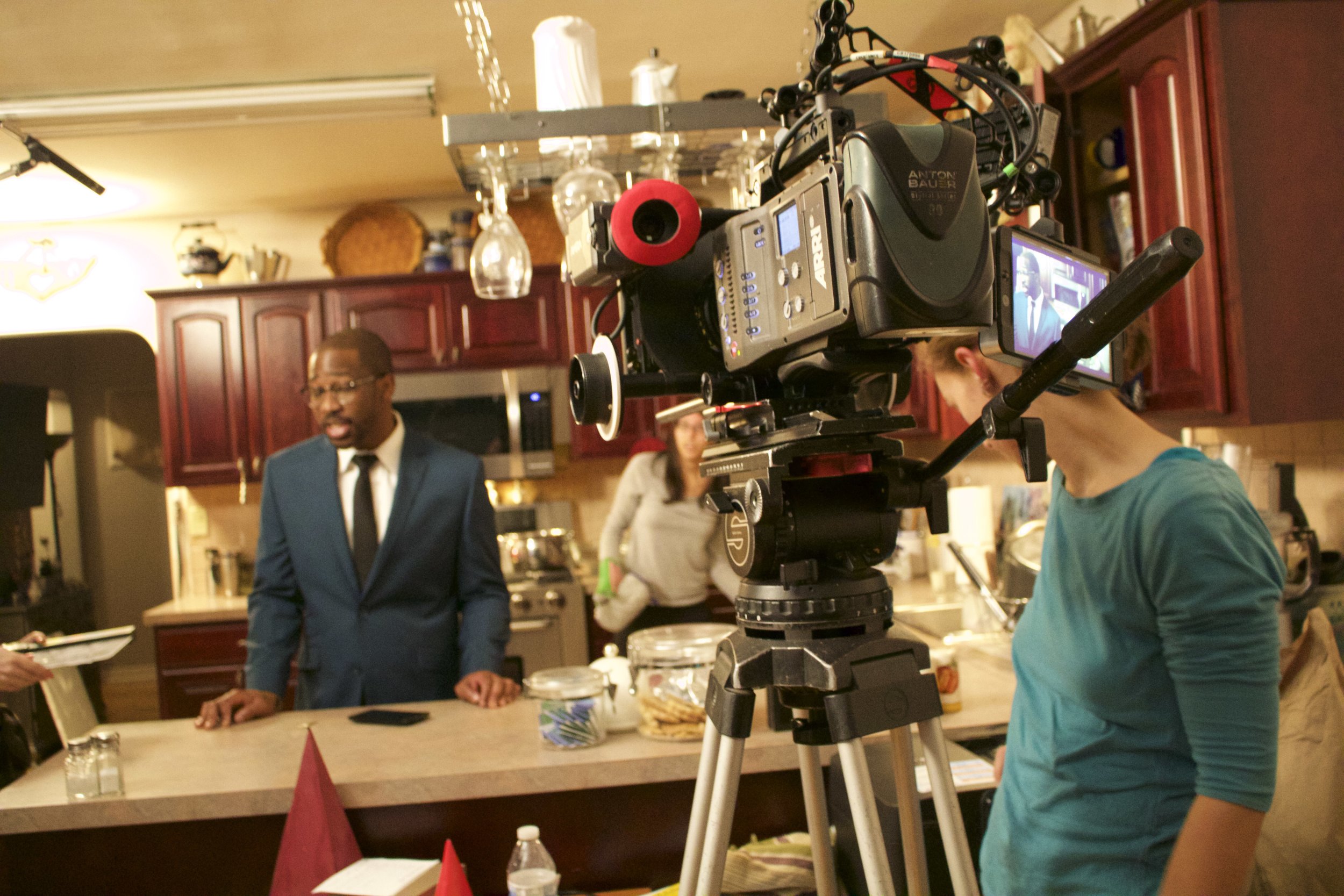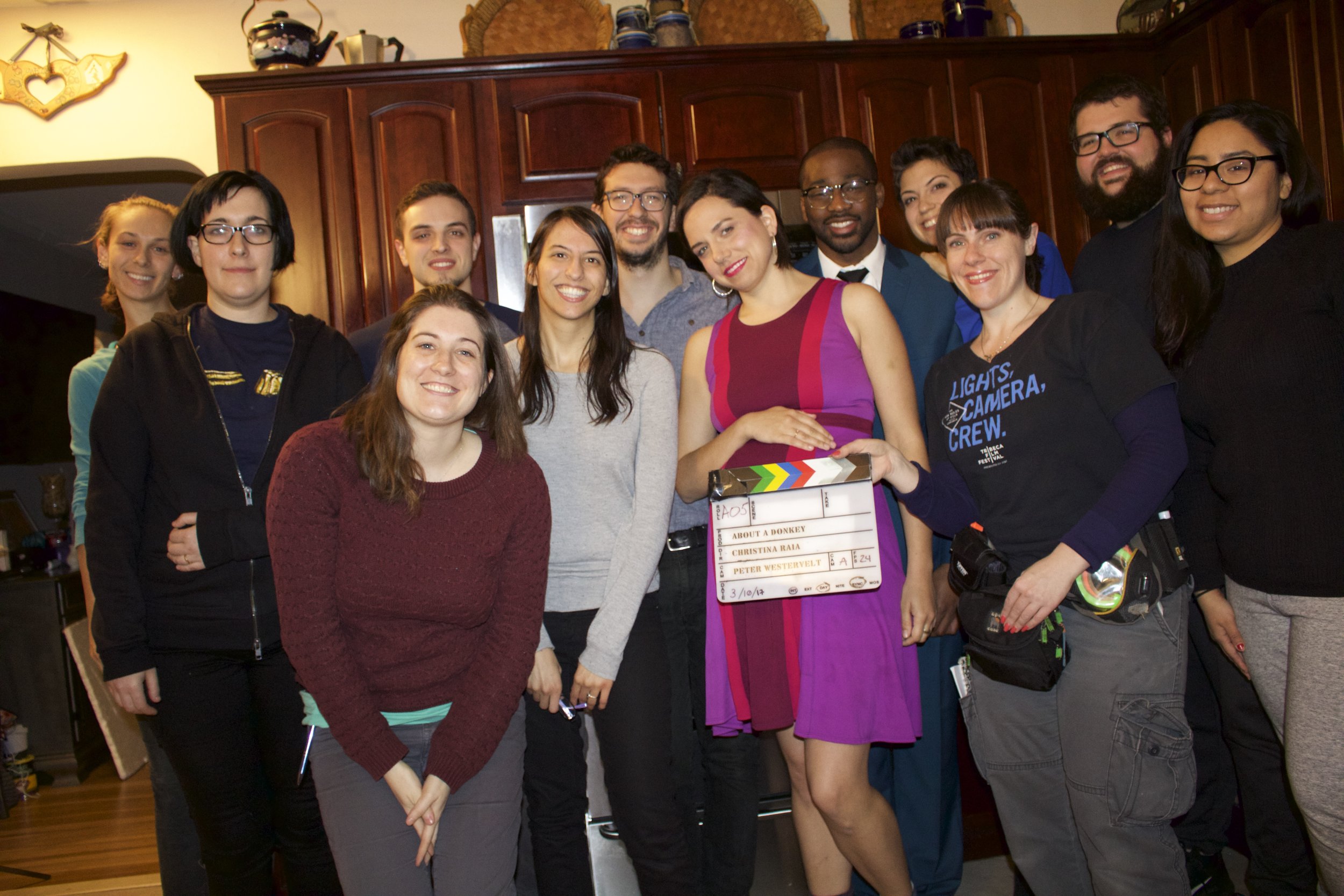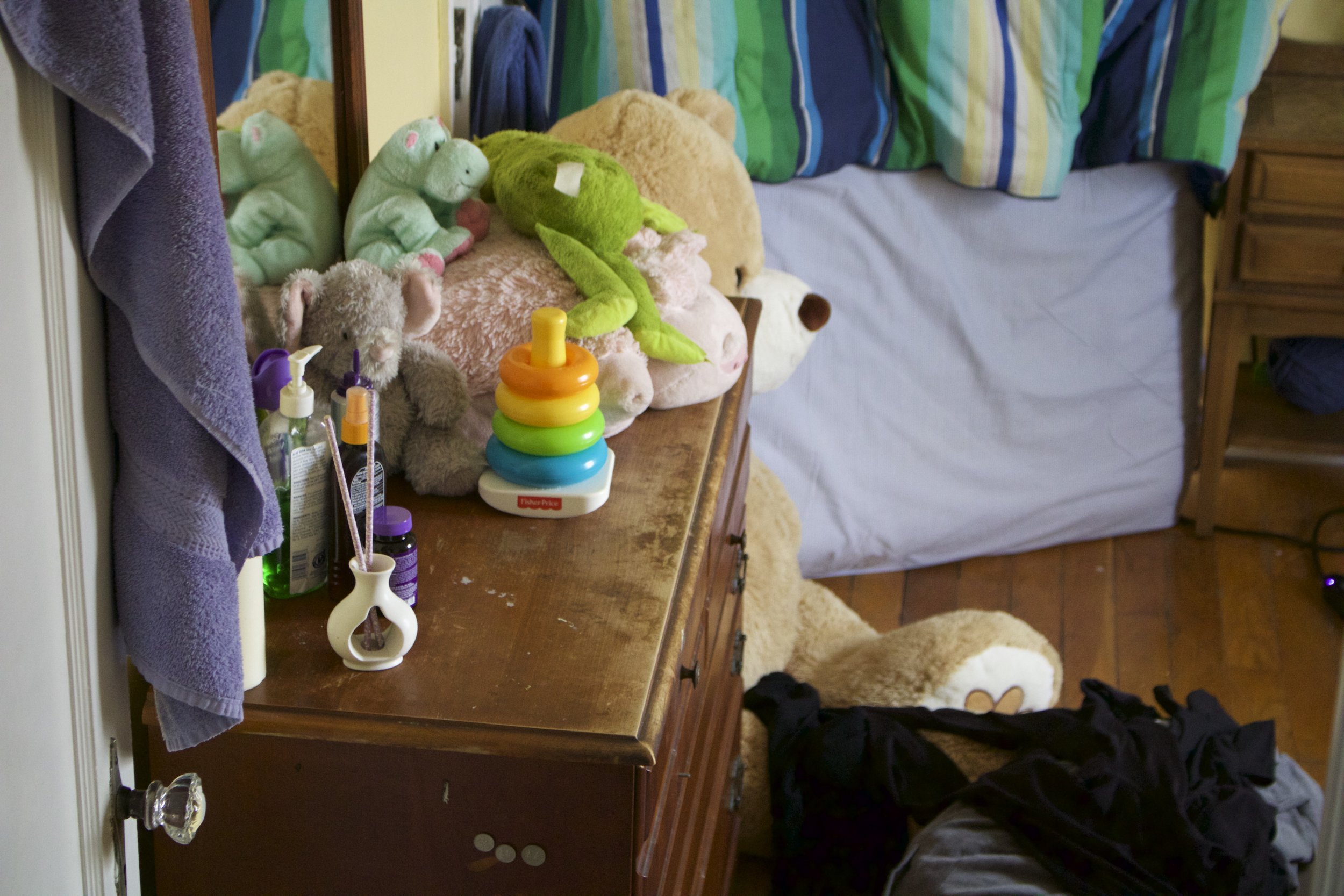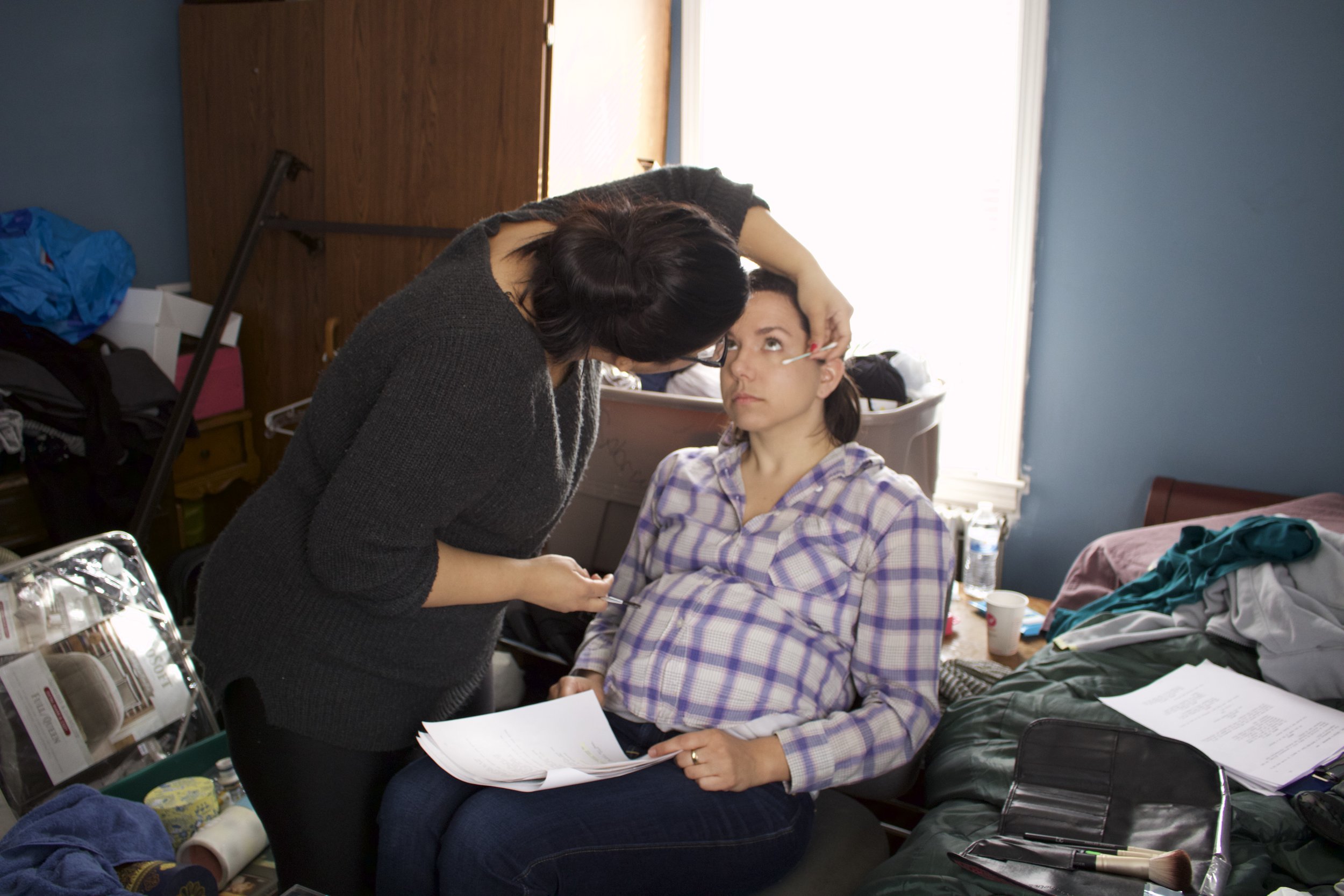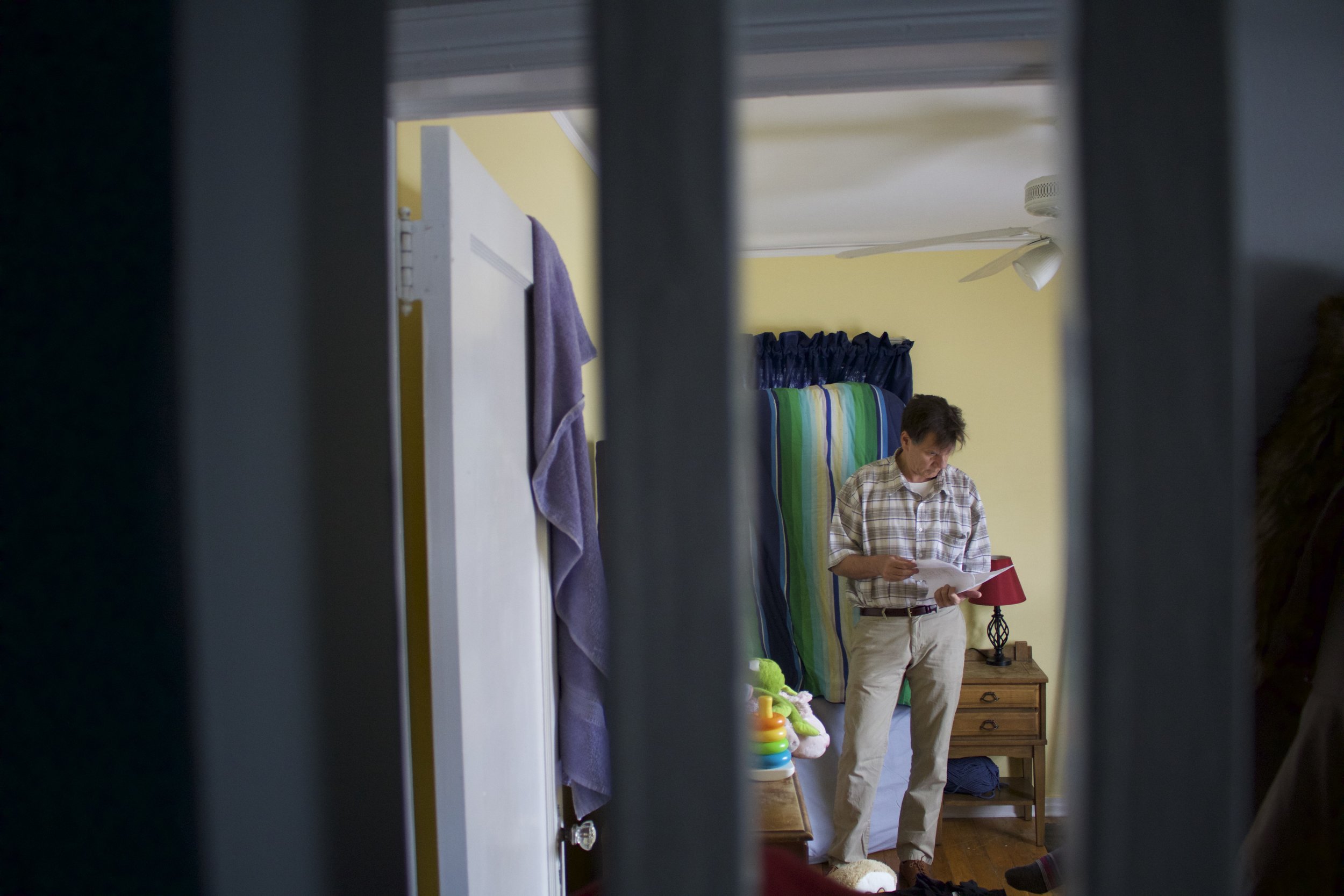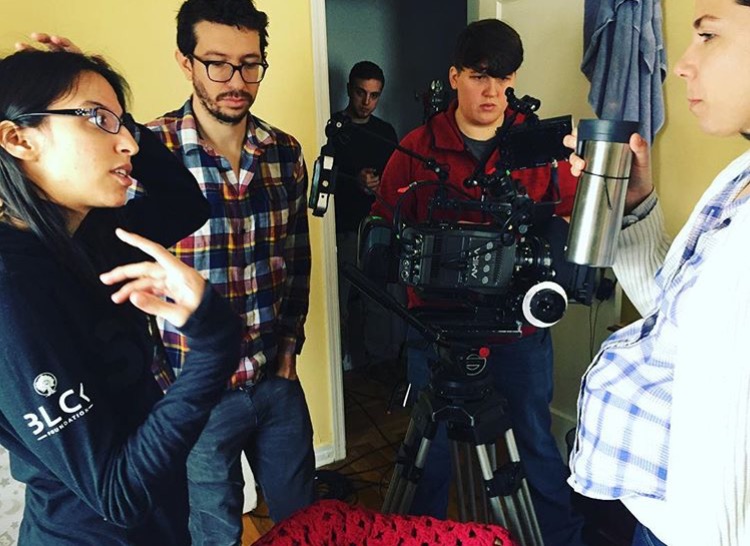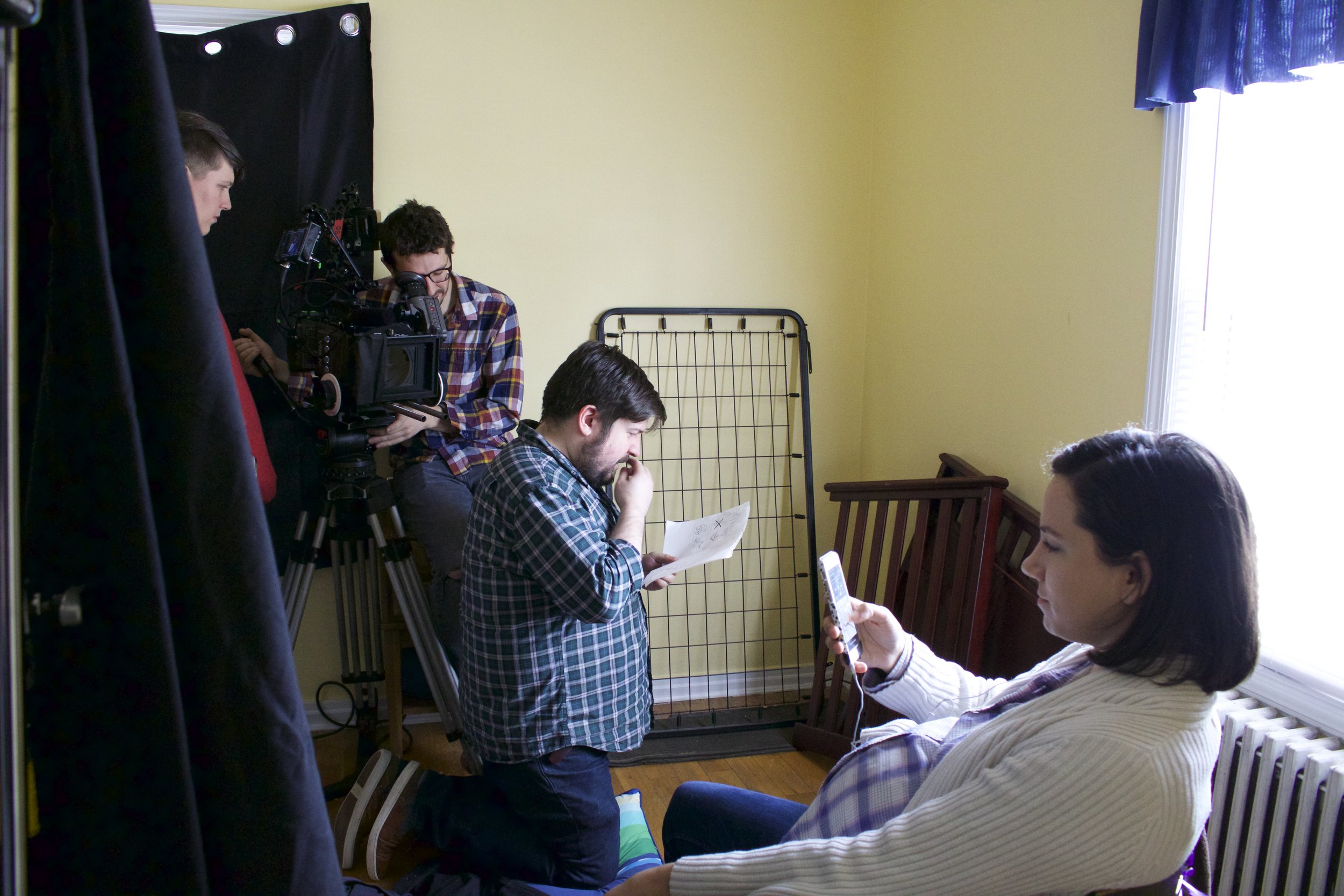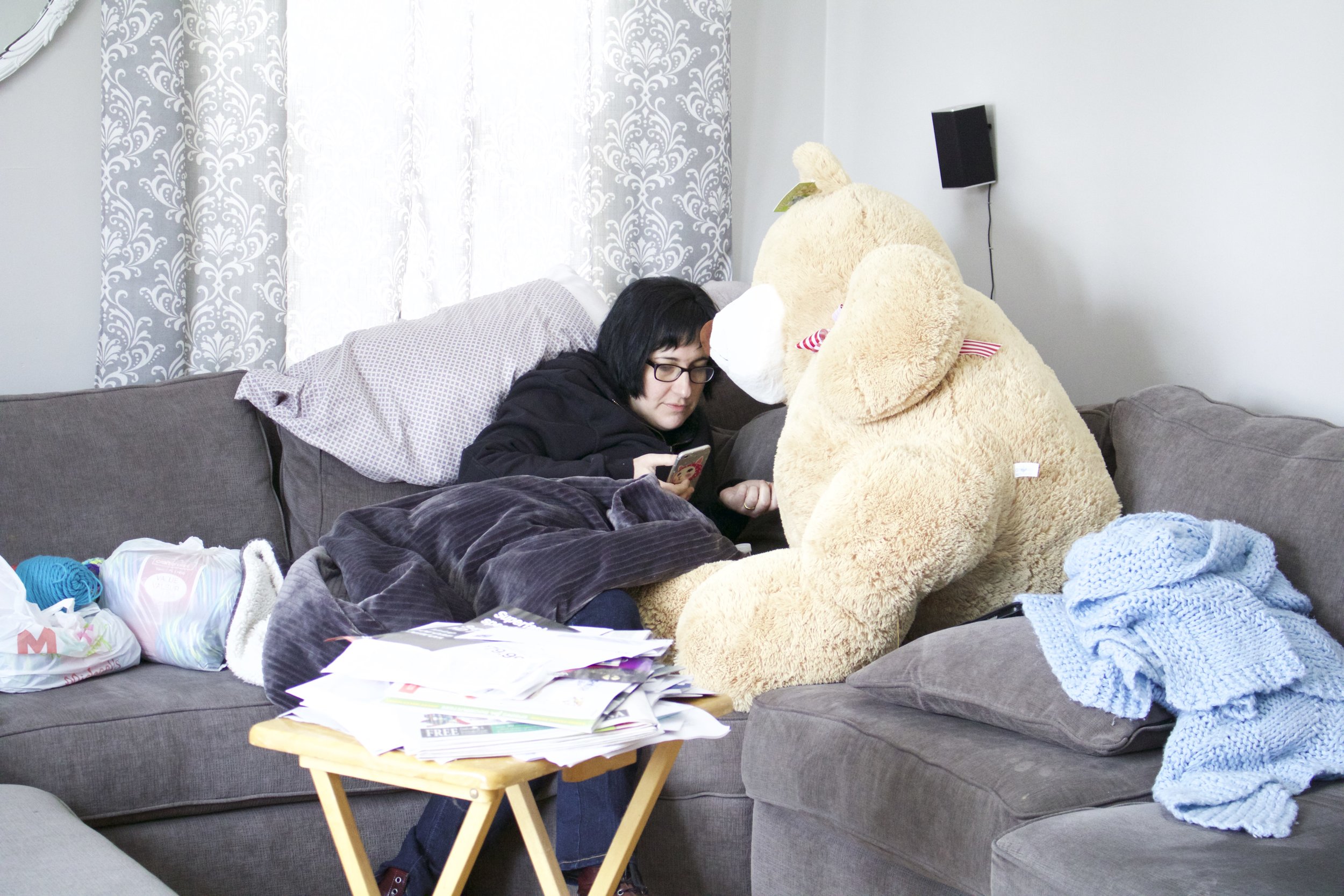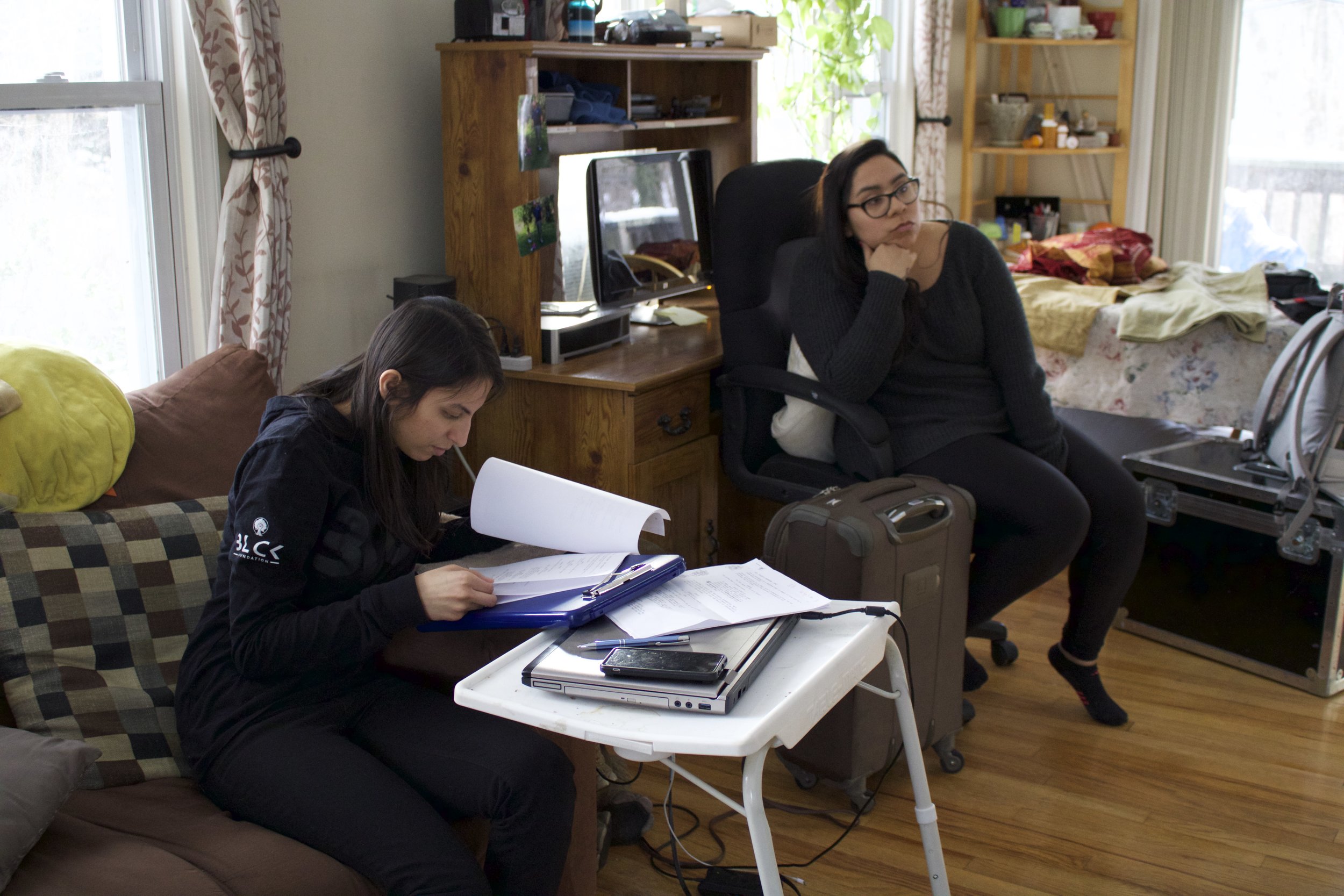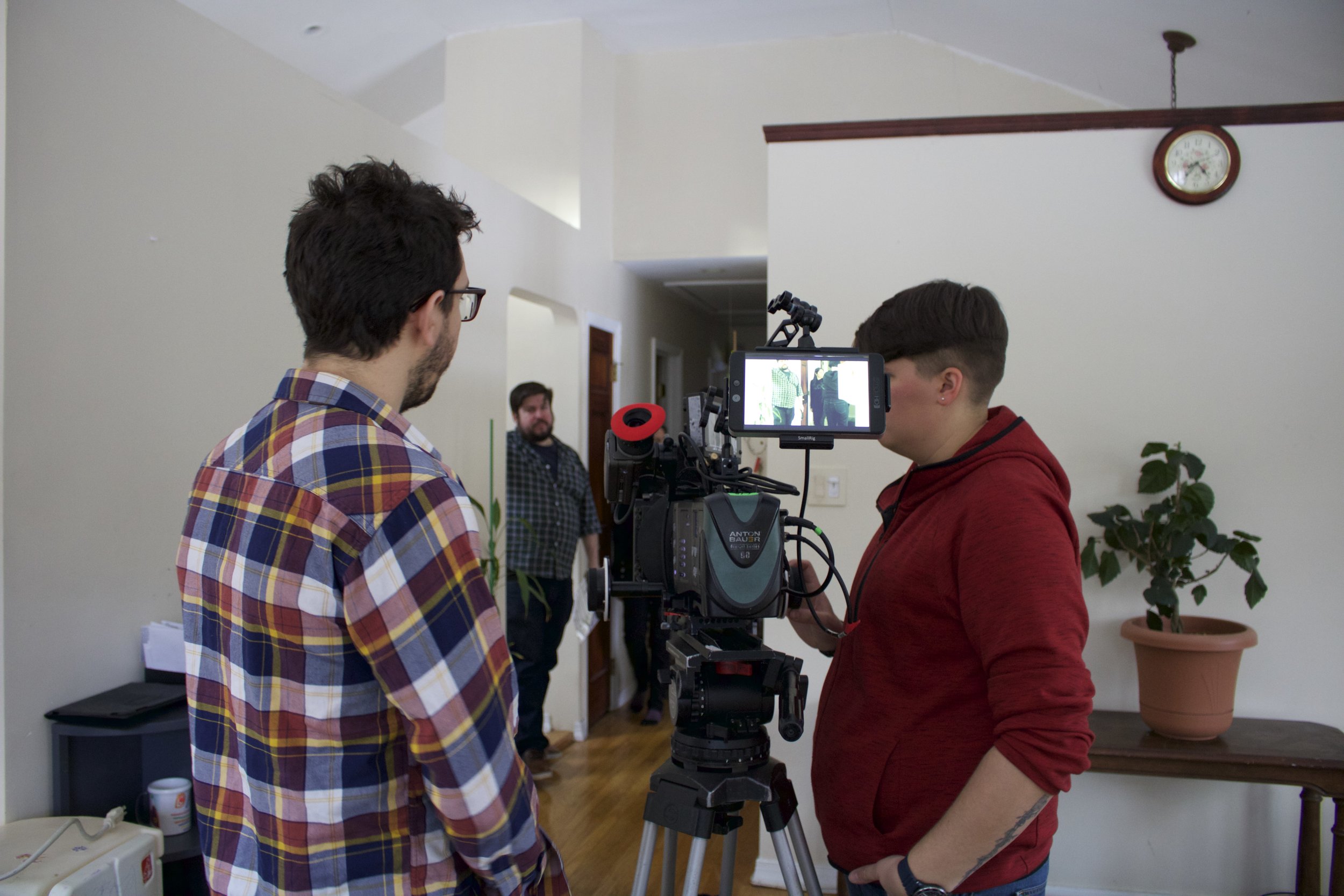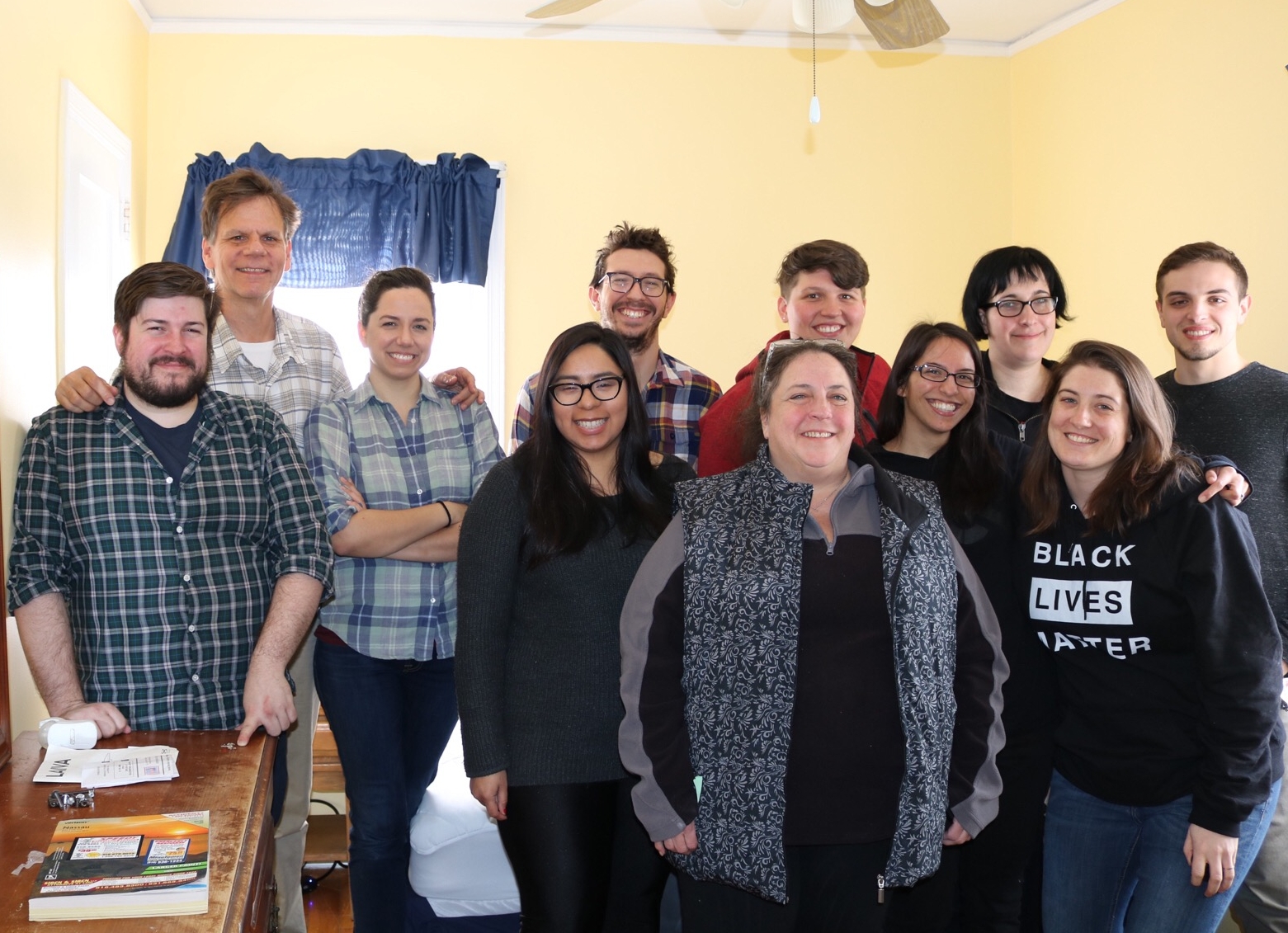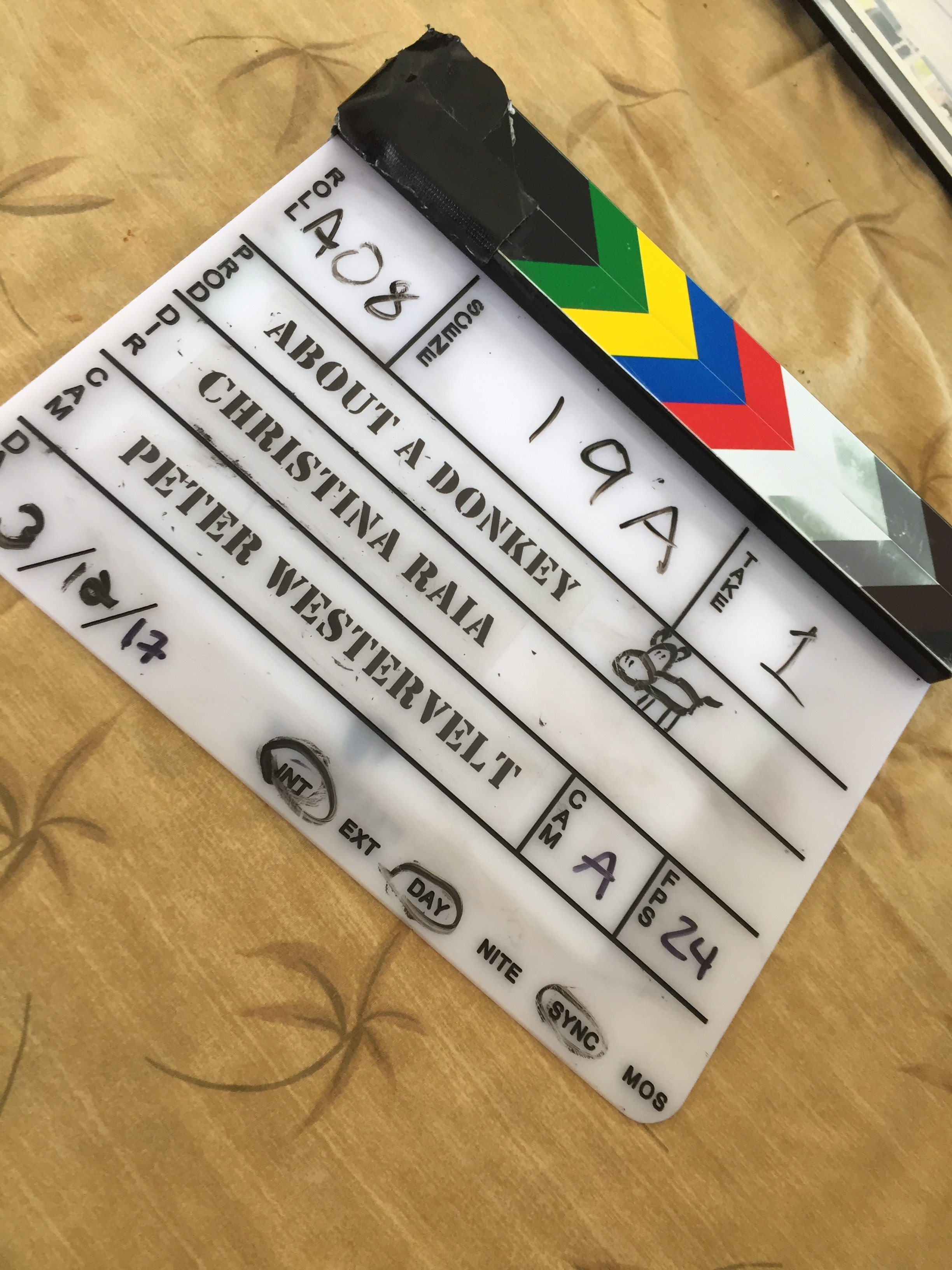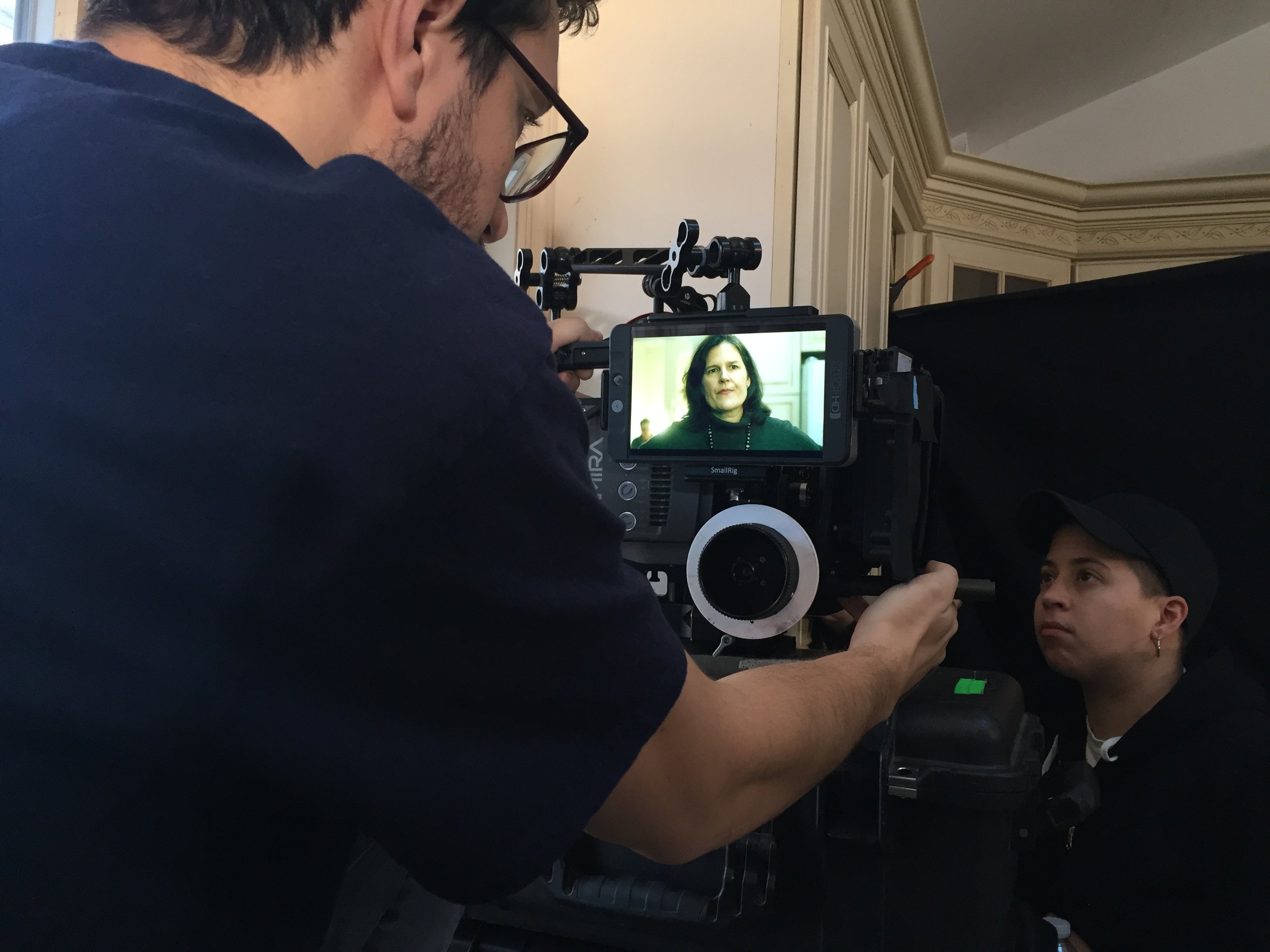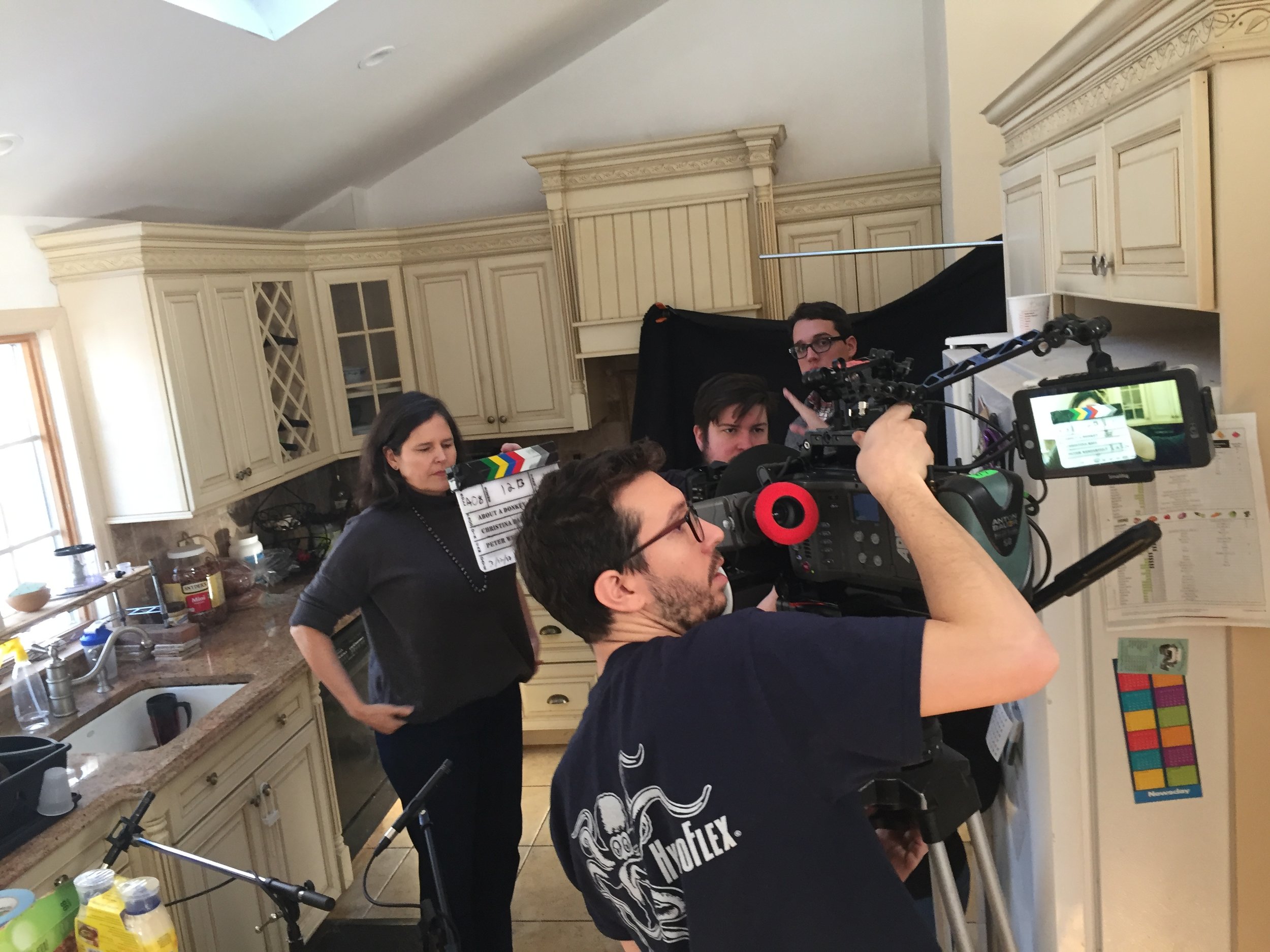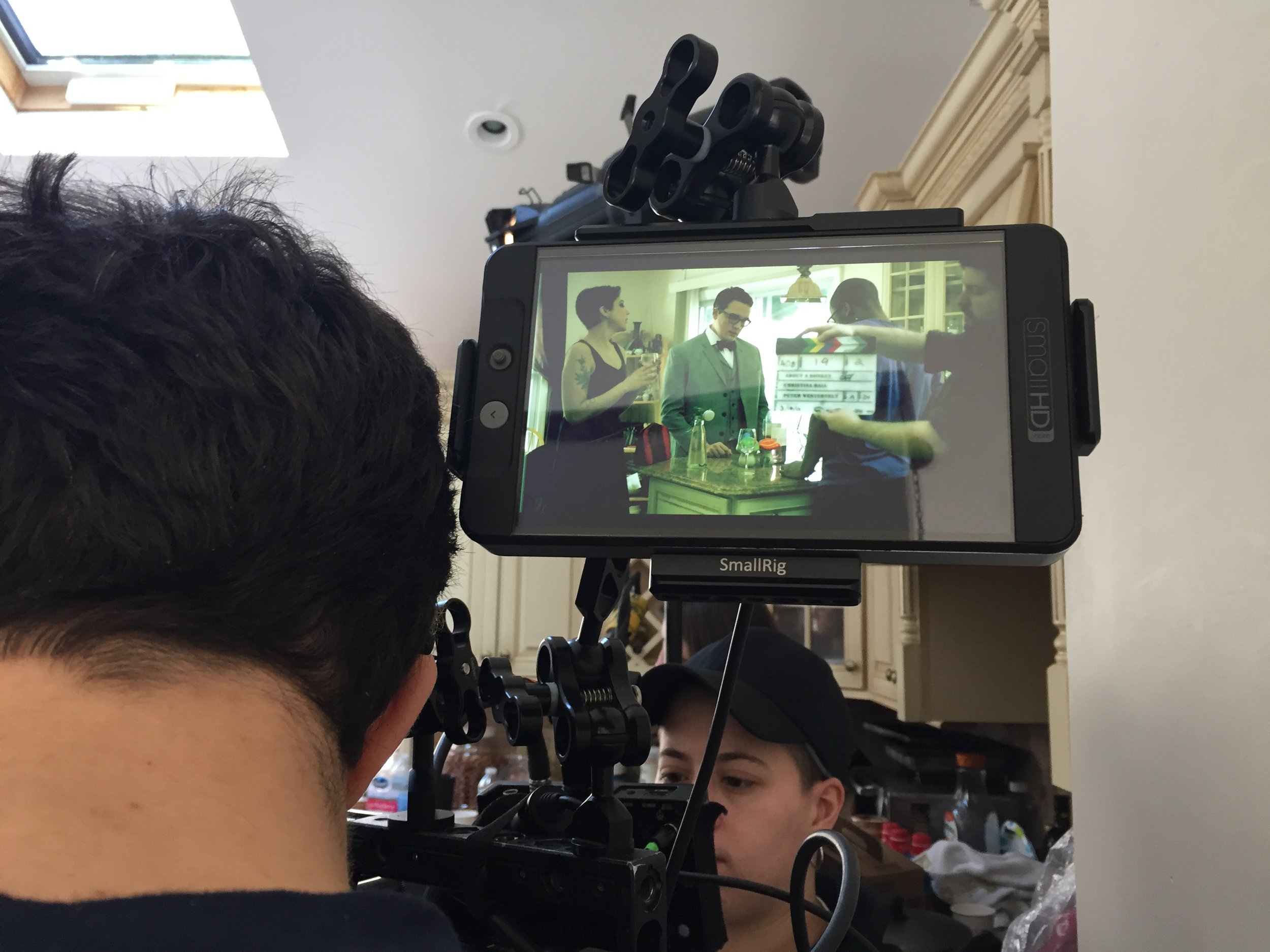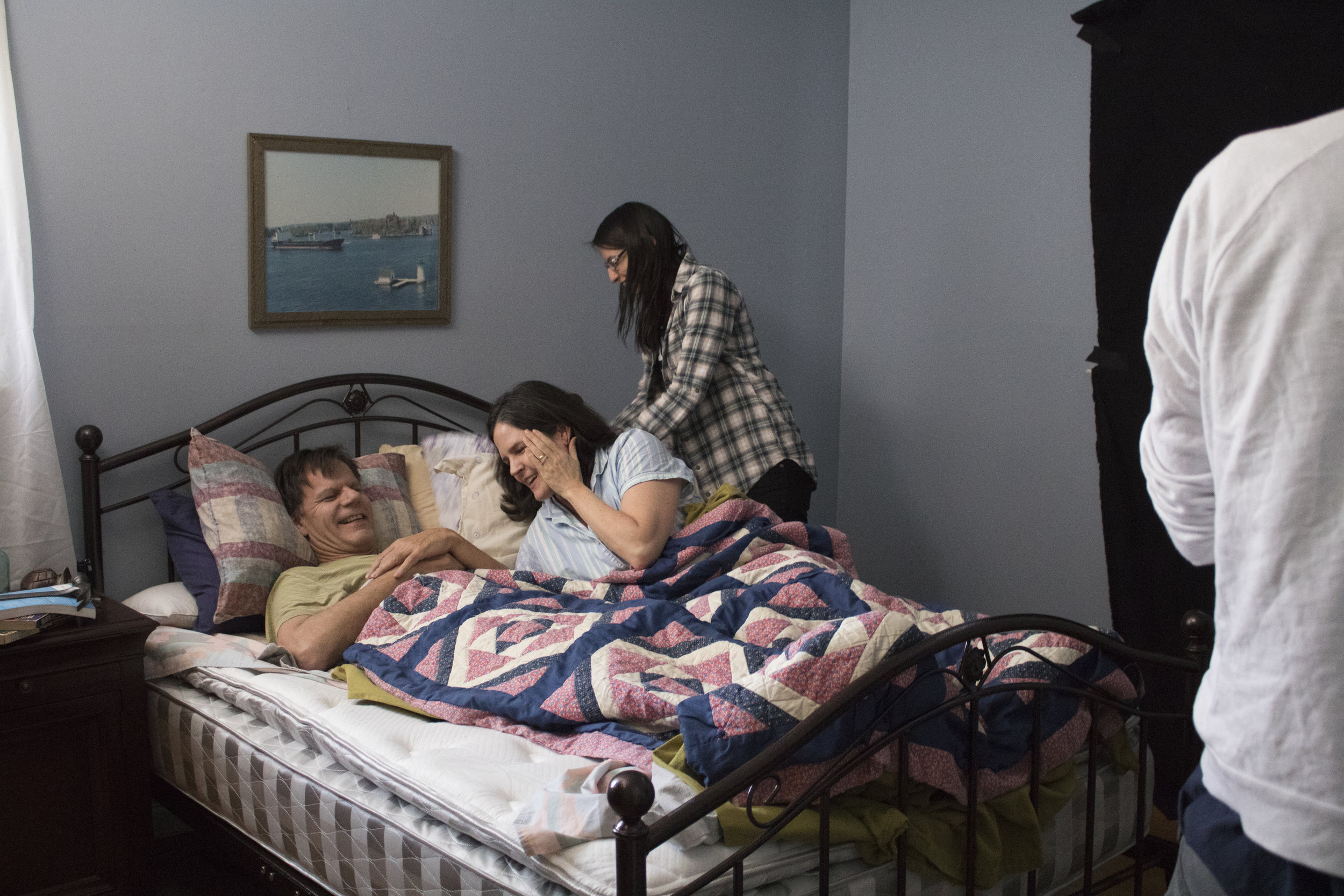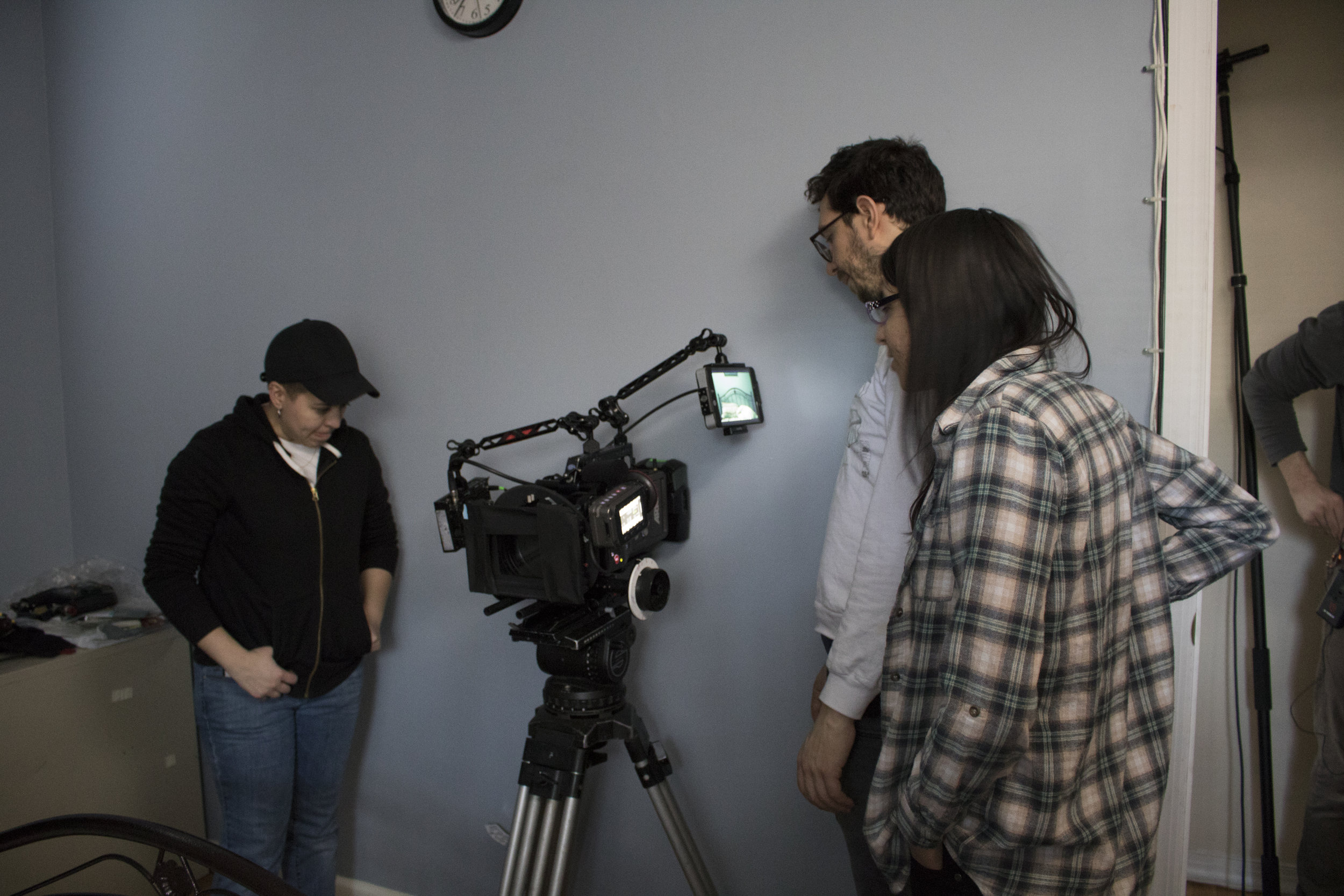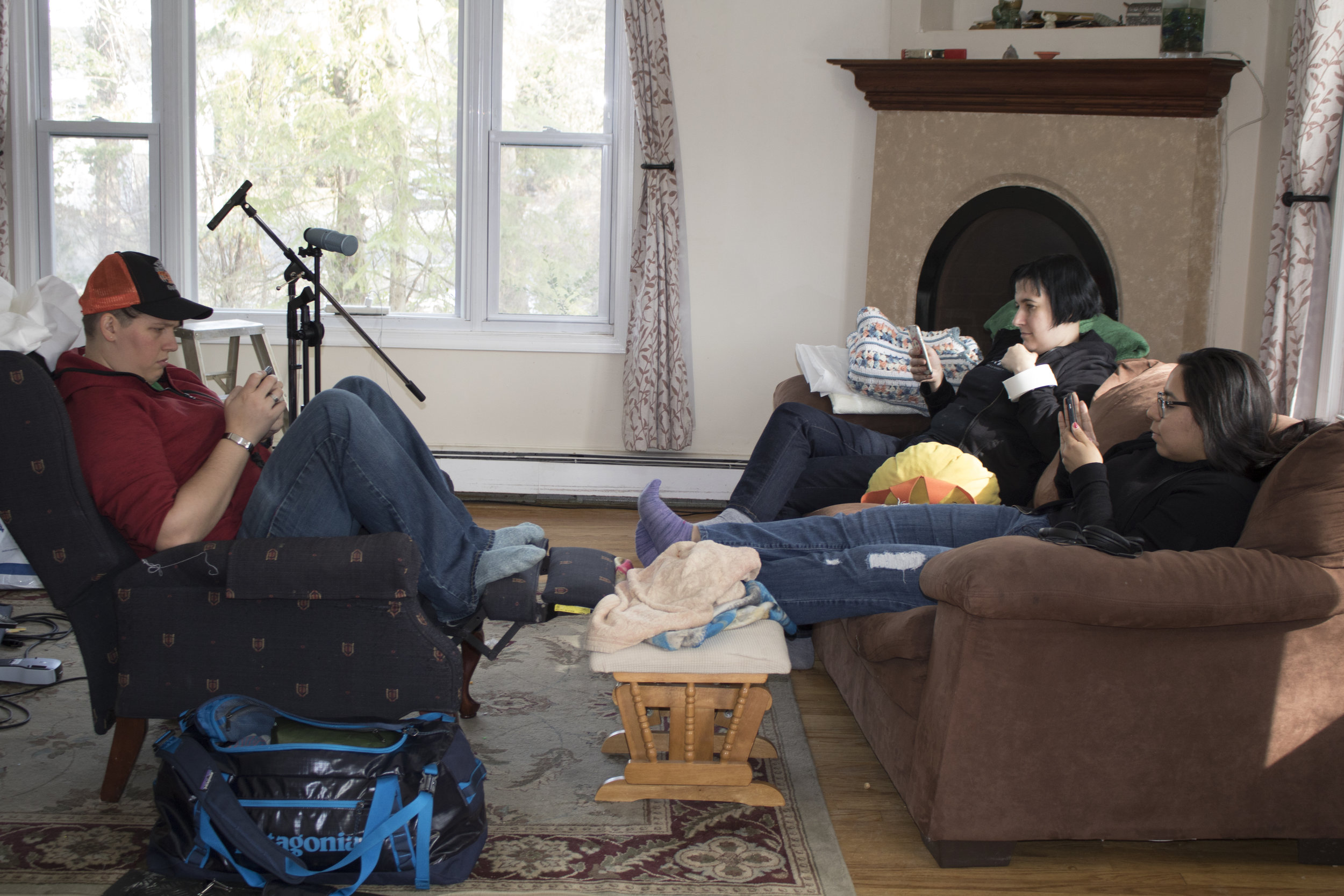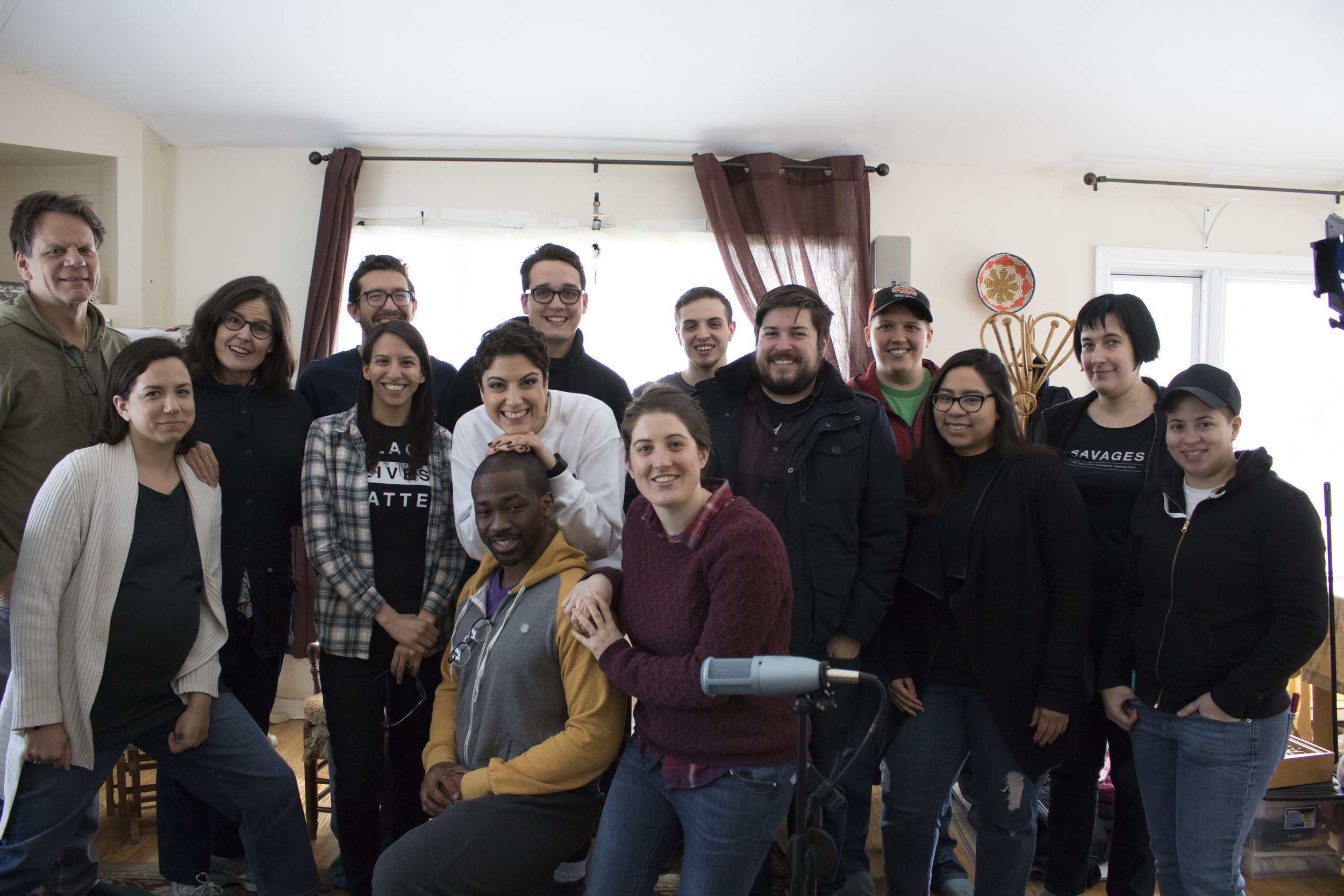Ryan's short film, "Arm Bar," is an official selection of the 2017 Urban Action Showcase here in New York City! It screens November 11th. Ryan will be in attendance. As will likely, producer, Christina, and, editor, Matt.
independent film
Official Selection Sick Chick Flicks!
Christina's short film, "Night In," is an official selection of the 2017 Sick Chick Flicks Film Festival in North Carolina! It screens October 29th. Christina won't be able to attend, but we'll hopefully have audience feedback to share.
"About a Donkey" Start of Principal Photography Recap
Thanks to all who supported our successful crowdfunding campaign, we were able to start principal photography on our second feature film, About a Donkey, this past weekend. You can check out this blog post to find out more about the film and see behind the scenes of our first unofficial production day back in January. I'll be sharing more about the experience of making this film, the creative choices behind it and how we're able to do it on $20,000 in 12 shooting days after we wrap production. But in the meantime, I'd love to include you in our progress through a bit of behind the scenes along the way via a weekly blog post. Here's the first.
We'll be shooting the film over four weekends through April 2nd. This was our first (three consecutive days), and it was a huge success! We're running on 12 hour days and I'm proud to say that we not only made our day all three days but made them early! This is a testament to the talent and skill of our small in quantity but mighty in quality crew & cast (or film-family, as we like to say)!
On Friday (thanks to my cousin Lauri, who loaned her house for the shoot), we shot scenes set in Annie & Paul's kitchen. See BTS below.
And check out a couple raw Stills from the day:
On Saturday, we shot scenes set in the nursery for Annie and Paul's soon-to-be baby. See BTS below.
And check out a raw Still from the day:
And check out a couple raw Stills from the day.
This weekend we'll be jumping back in shooting a scene set in a hospital waiting room on Friday and scenes set in (grandma) Farrah's nursing home on Saturday. (We're skipping Sunday because our pilot "Two Gays & a Girl" is premiering at the Queens World Film Festival that afternoon!)
You may be wondering where the titular donkey is in all this production. Well, stay tuned!
-Christina
We're Crowdfunding for "About a Donkey!"
We launched our Seed&Spark campaign for our second feature today! Watch our pitch below, then check out our campaign to get involved with bringing this film to life!
Working Towards Sustainability: Why I Keep Crowdfunding & Making Short Films
In high school, I sold candy to my classmates in order to raise enough money to buy a Canon GL2 and an iMac to make a movie. My school had just gone on a health kick and removed the vending machines, so I spotted an opportunity. I would come into school with a briefcase filled with candy I bought at Costco and attempt to empty it by the end of each day. My mom was a single parent who, at the time, worked three jobs. She wasn't in a financial position to just give me the things I wanted.
There was a boy in my class who also aspired to make movies. I remember having a conversation with him where he said that a Canon GL2 was “pretty cool” but he was going to ask his parents to buy him the XL2 (a step up from my desired model) along with a new Macbook. He generally paid little attention to me and my filmmaking efforts, but I secretly used him for motivation. I channeled what could have been seething jealousy into a point of pride - I was going to get there through my own determination and hard work. I kind of like to think of this experience as my first foray into the inequalities of the industry that my love for filmmaking requires me to be apart of, and how I learned to create opportunities for myself and fully embrace the effort to do so. It was also sort of a test run of what would eventually become my main method of funding content; crowdfunding. The students at my school were generally more well- off, and didn't necessarily understand why I needed to be selling candy in order to buy a camera and computer. Most were pulling for me, though, because they felt invested in my success. I won them over with my passion for what I wanted to create, and they participated in my endeavor. It took almost a year, but I did eventually get that camera and iMac.
Cut to 10 years later, here I am trying to do pretty much the same thing with every project I make. I have a lot of privilege that many of my peers don't and wouldn’t want to paint myself as the ultimate underdog. But I know that I am not the filmmaker the industry champions. I’m a woman. I’m a minority. I was the first in my family to graduate college. Before going to school for film and networking with other filmmakers, I had no access to or understanding of how the industry actually works. And even though I did have the privilege to study film, I didn't go to a top film school that granted me any connections to money or gatekeepers. But I never really wanted that. I don't love the industry that makes movies. I love making movies. I love storytelling and being able to reach people. I love mixing genres and breaking formulas. I love making people laugh. I love scaring people in a way that makes them think and evolve. I love portraying individuals who aren’t represented in the mainstream (like my multi-ethnic self who saw no one like me on a screen growing up). I don’t want to make superhero spectacles or Oscar bait regurgitations. I wouldn't have any interest in being a Sundance “success story,” even if I had the level of privilege that actually made that path realistic. What does interest me is telling unique stories that matter and making creative content that allows me to connect with people who crave it. So that’s how I approach my career. That’s the goal. In order to do this though, I have to be able to reach people with that content, and that's definitely a challenge. Taking this a step further, it’s not just about reaching people with each project but about being able to use that reach to make the next project and the next and the next. This is where social media has come in. Without social media, I’d have no career, at least not a sustainable one. It’s how I’ve mapped out a path for myself that allows me to knock down doors. Being able to jump into conversations and reach out into the world to pull people in, that’s where it’s at for me. However, it’s not just about gaining relationships with audiences, it’s about maintaining them.
People often ask me why I still make short films after having made a feature and a successful web series. I love features - I’m currently working on my second. I love series - I hope to create many. But I also love shorts (so much so, I created a monthly screening series devoted to them). A lot of people think of shorts as a means to get to making features. I think they’re totally different entities. Often, filmmakers make the mistake of trying to cram feature length stories into shorts; but truly effective shorts work best as just that - short. I have so many stories I want to tell and some simply make sense in short form. And though society and the industry may place more value on features, that doesn't mean that I'm not going to continue telling the stories I feel need to be told in the form that suits them best.
So yeah, I make a lot of shorts. I put out two or three a year, and always for free. Currently, the only thing I'm charging for of my work is my first feature film. I sometimes get questions about why I put out so much content just to give it away for free. It may seem counterproductive to sustainability. But I’m looking at the long game here. This is a marathon for me, not just a quest to get to some finish line. I’ll never be done telling stories or making films, so I need to look at each project as building a stronger foundation for the next. I've learned what works for me; the momentum that I've built with my audience is made of planting seeds for future bloom. In order for crowdfunding my projects to be sustainable and for me to keep coming back with more ambitious campaigns, I need to be able to build my crowd between those campaigns. I believe the work put into content creation is worth paying for and that viewers should view film watching as consuming a product with monetary value, but I also believe in being realistic about the way people view art, film in particular, and meeting people where they’re at to pull them forward. It's hard to ask people to fund a project before it exists and then to also pay to watch it after it does. So my method to satisfy my desire to make shorts and tell stories on a regular basis is to offer a lot and be strategic about when and how I make an ask.
Between crowdfunding campaigns I've been able to show my audience the progress I've made as an artist and make them feel part of that growth by producing content on my own dime. I've been able to do that by keeping costs extremely low for shorts through bartering skills with fellow filmmakers and generally trying to be super community-focused. That activity between crowdfunding campaigns has allowed me to come back every couple of years and get a film funded outside my own pocket through many of the same but also a lot of new followers and supporters. In my last campaign, I was able to build payment for my own work on the project into the campaign goal, which is where I think this becomes truly sustainable. But it’s all about the baby steps in a very uphill battle. Every time I release a short, I’m building my audience and engaging them enough to bring them along on my journey. Those people do eventually pay for my content, but in indirect ways. Yes in terms of contributing to my campaigns, but also in sharing my free content that leads traffic to my feature rental. It’s all a circle. That’s ultimately what I’m doing on a regular basis, maintaining and building a circle where everything is working in tandem to create sustainability for me as a filmmaker, not just for each project. It’s not happening overnight, but it’s happening.
In two days, I’ll be launching a crowdfunding campaign for the fourth time; for my second feature, “About a Donkey.” I’d be lying if I said I'm crowdfunding again only out of choice and not also out of necessity. I still don't have access to people with money that could become investors. I still come from and work in humble means. The people I care to tell stories with and about are still undervalued and underrepresented by the industry. Despite this, I honestly believe that even if I could get the funds in more “traditional” ways, I’d still choose this route - even if just for some of the budget. The inclusion of the audience in the filmmaking experience — the feeling that we’re all creating something from scratch and inviting the audience to be part of that creativity is something I truly love. It’s what makes all the hard work worth it. I hope you’ll join us on February 1st in bringing "About a Donkey" to life.



